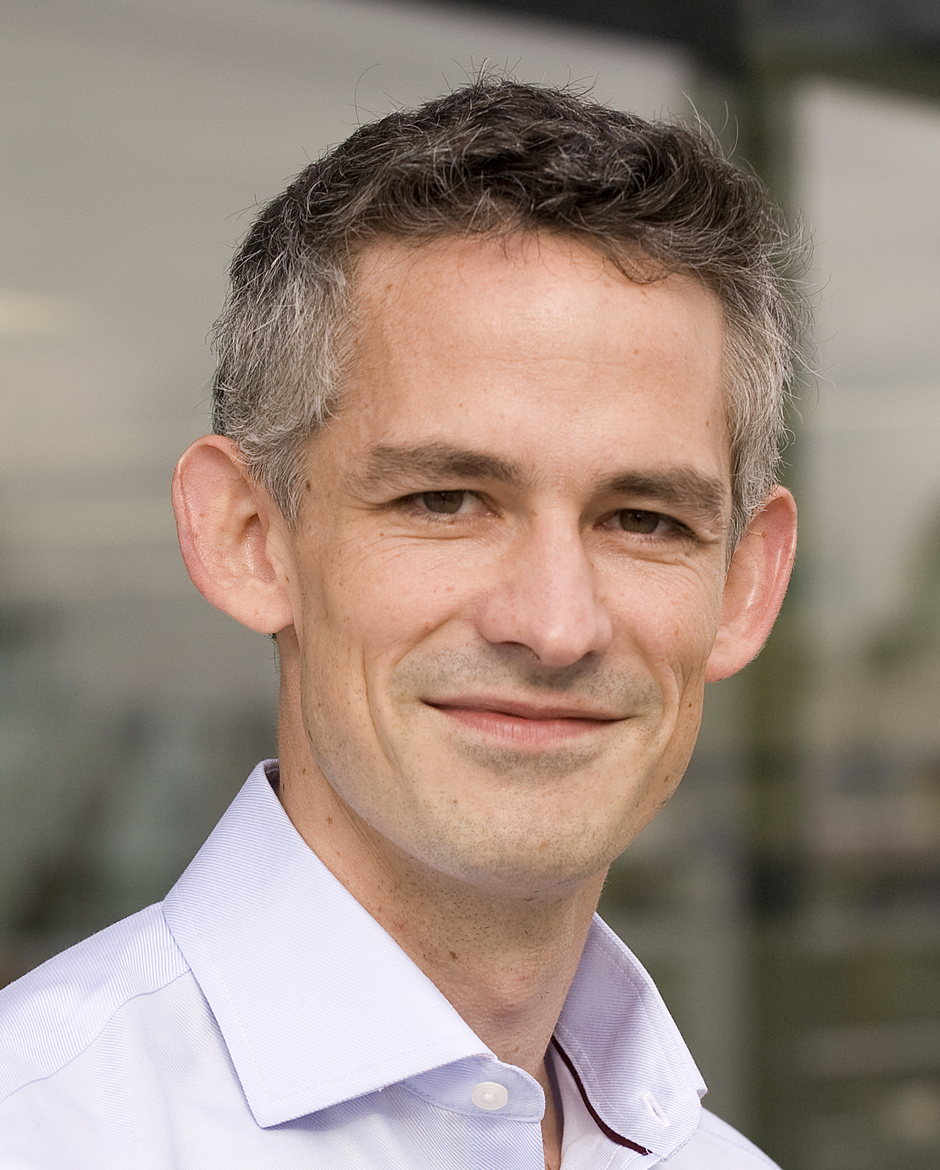Center for Financial Frictions
Past Conferences
FRIC Conferences
FRIC organized a 2-day conference on Financial Frictions held every year in August. In addition to this, we also organized other conferences in collaboration with the Department of Finance and others from our international network.
You can find more information about past conference below.
FRIC'22 Conference on Financial Frictions
Center for Financial Frictions (FRIC) and The Department of Finance, Copenhagen Business School hosted its ninth conference in a series of international conferences on financial frictions.
Keynote
- Viral Acharya, NYU Stern School of Business and CEPR
- Darrell Duffie, Stanford Graduate School of Business
- Itay Goldstein, Wharton School, University of Pennsylvania
Speakers
- Signe Krogstrup, Danmarks Nationalbank and CEPR
- Howard Kung, London Business School and CEPR
- Steven Ongena, University of Zurich and CEPR
Discussants
- Tobias Berg, Frankfurt School of Finance & Management
- Christian Wagner, WU Vienna University of Economics and Business
The conference was organized by Copenhagen Business School, Center for Financial Frictions (FRIC), the Department of Finance, and Centre for Economic Policy Research (CEPR).
The FRIC’22 conference took place in Copenhagen on June 10, 2022.
Programme
June 10, 2022
08:15-09:00
Registration and Coffee
09:00-09:05
Welcome and opening remarks by David Lando and Lasse Heje Pedersen
09:05-10:05
Keynote: “Liquidity, Liquidity Everywhere - Not a Drop to Use: Why Flooding Banks with Central Bank Reserves May Not Expand Liquidity”
Viral Acharya, New York University Stern School of Business
10:05-10:50
“Threats to Central Bank Independence: High-Frequency Identification with Twitter”
Howard Kung, London Business School
Discussant: Christian Wagner, WU Vienna University of Economics and Business
10:50-11:15
Coffee break
11:15-12:15
Keynote: “Digital currency policy”
Darrell Duffie, Stanford University, Graduate School of Business
12:15-13:15
Lunch
13:15-14:00
“Climate change and green government bonds”
Signe Krogstrup, Danmarks Nationalbank
14:00-14:45
“Too-big-to-strand? Bond versus bank financing in the transition to a lowcarbon economy”
Steven Ongena, University of Zurich
Discussant: Tobias Berg, Frankfurt School of Finance & Management
14:45-15:00
Coffee break
15:00-15:45
Keynote: “On ESG Investing: Heterogeneous Preferences, Information, and Asset Prices”
Itay Goldstein, Wharton School, University of Pennsylvania (online)
15:45-15:50
Closing remarks by David Lando
15:50-16:30
Reception
Venue
Solbjerg Plads 3
SP202
2000 Frederiksberg
Denmark
Accommodation
High-end
Skt. Petri Hotel
This hotel is located downtown in a newly refurbished building originally designed by W. Lauritzen. It is Denmark's principal designer boutique hotel, and offers easy access to CBS by means of the Nørreport M
Mid-range
Scandic Falkoner
The Scandic Falkoner is a newly refurbished hotel centrally located in the charming theatre district of Frederiksberg. The hotel is located only a 5 minutes’ walk from CBS and the Frederiksberg Metro Station.
Hotel Danmark
The Hotel Danmark is a luxury boutique hotel located in the city center. You can reach CBS by means of the Rådhuspladsen Metro Station.
Low-range
Cab Inn Scandinavia Hotel
This non-smoking hotel with a modern design lies close to Forum Metro Station, adjacent to the Copenhagen lakes. Travel time to CBS by metro is 3 minutes.
For other accommodation options, please see the Visit Copenhagen website.
Speaker bios
Keynote Speakers

Viral V. Acharya, New York University Stern School of Business and CEPR
Viral V. Acharya is the C.V. Starr Professor of Economics in the Department of Finance at New York University Stern School of Business (NYU-Stern). He was a Deputy Governor at the Reserve Bank of India (RBI) during 23rd January 2017 to 23rd July 2019 in charge of Monetary Policy, Financial Markets, Financial Stability, and Research. He is a Research Associate of the National Bureau of Economic Research (NBER) in Corporate Finance, a Research Affiliate at the Center for Economic Policy Research (CEPR), and Research Associate of the European Corporate Governance Institute (ECGI). He has been an Academic Advisor to the Federal Reserve Banks of Chicago, Cleveland, New York and Philadelphia, and the Board of Governors, and provided Academic Expert service to the Bank for International Settlements, the International Monetary Fund and the World Bank. His primary research interest is in theoretical and empirical analysis of systemic risk of the financial sector, its regulation and its genesis in government- and policy-induced distortions, an inquiry that cuts across several other strands of research – credit risk and liquidity risk, their interactions and agency-theoretic foundations, as well as their general equilibrium consequences.
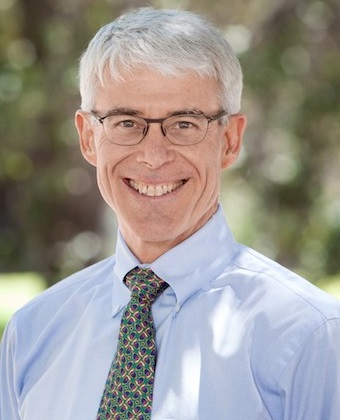
Darrell Duffie, Stanford University, Graduate School of Business
Darrell Duffie is the Adams Distinguished Professor of Management and Professor of Finance at Stanford Graduate School of Business, and Professor (by courtesy) in the Department of Economics, Stanford University. He is a Senior Fellow of the Stanford Institute for Economic Policy Research, a Fellow of the Econometric Society, a Research Fellow of the National Bureau of Economic Research, a Fellow of the American Finance Association, a Senior Fellow (by courtesy) of the Hoover Institution at Stanford University, and a Fellow of the American Academy of Arts and Sciences. He is a past president of the American Finance Association. Duffie chaired the Financial Stability Board’s Market Participants Group on Reference Rate Reform. He is a Project Advisor of The G30 Working Group on Digital Currencies, a member of the Systemic Risk Council, a co-director of the Hoover Institution’s Study of the Global Implications of China’s Central Bank Digital Currency, and a member of the Advisory Council of the Future of Digital Currency Initiative at Stanford University.
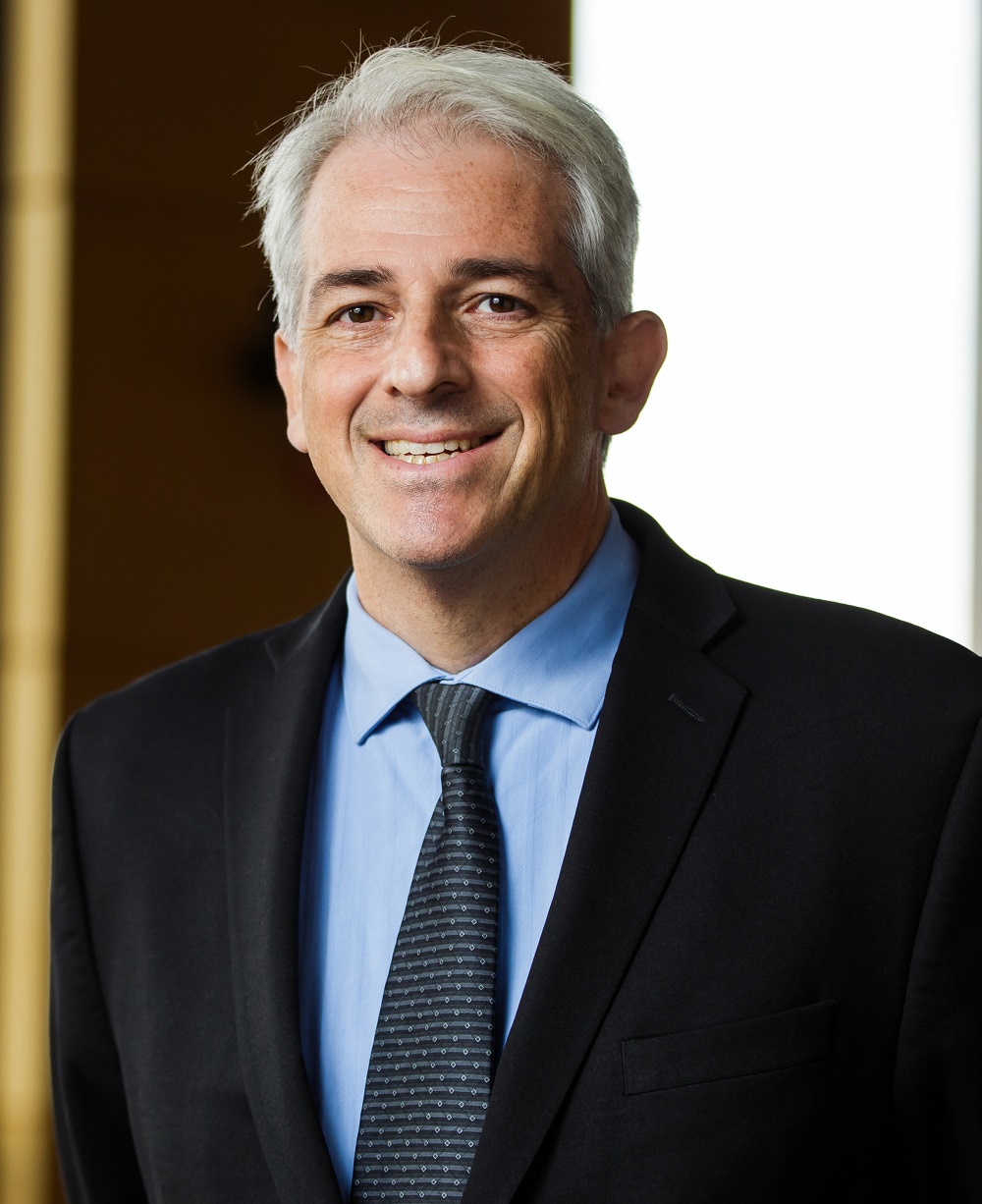
Itay Goldstein, Wharton School, University of Pennsylvania
Itay Goldstein is the Joel S. Ehrenkranz Family Professor and a Professor of Finance at the Wharton School of the University of Pennsylvania. He has been on the faculty of the Wharton School since 2004. He serves as the coordinator of the Ph.D. program in Finance and holds a secondary appointment as a Professor of Economics. Professor Goldstein earned his Ph.D. in Economics in 2001 from Tel Aviv University. He is an expert in the areas of corporate finance, financial institutions, and financial markets, focusing on financial fragility and crises and on the feedback effects between firms and financial markets. His research has been published in top academic journals, including the American Economic Review, the Journal of Finance, the Journal of Financial Economics, the Review of Economic Studies, and the Review of Financial Studies. His research has also been featured in the popular press in the Economist, Wall Street Journal, Financial Times, Bloomberg, Forbes, National Public Radio, and others. Professor Goldstein is the Executive Editor of the Review of Financial Studies since 2018. Before that, he served there as an editor for five years. He also served as an editor of the Finance Department in Management Science and an editor of the Journal of Financial Intermediation. Professor Goldstein is a Research Associate at the National Bureau of Economic Research. He served as an academic advisor in various policy institutions, including the Federal Reserve Banks of New York, Philadelphia, and Richmond, the Bank of Canada, the Bank for International Settlements, and the Committee for Capital Markets Regulation. He was the co-founder and the first president of the Finance Theory Group and served as a director of the American Finance Association, the Western Finance Association, and the Financial Intermediation Research Society. He is a frequent speaker in academic and policy forums around the world, and acted as keynote speaker in leading academic conferences. He has taught various undergraduate, M.B.A., Ph.D., and executive education courses in finance and economics. Prior to joining Wharton, Professor Goldstein has served on the faculty of Duke University’s Fuqua School of Business. He had also worked in the research department of the bank of Israel.
Speakers
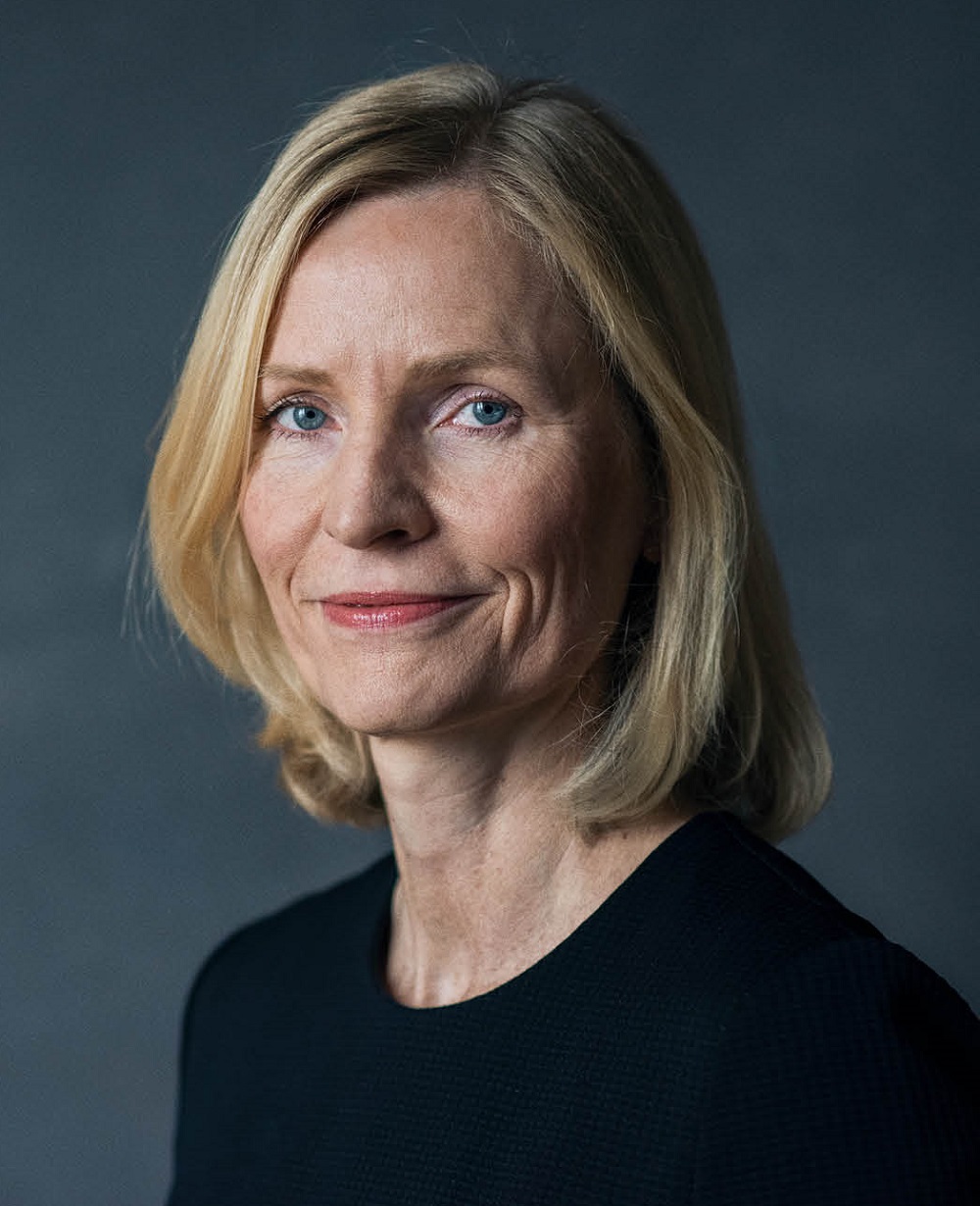
Signe Krogstrup, Danmarks Nationalbank
Signe Krogstrup is Member of the Board of Governors of Danmarks Nationalbank. She holds an MSc econ. from University of Copenhagen and a PhD in international economics from The Graduate Institute of International and Development Studies in Switzerland. Signe has extensive experience in economic research and monetary policy. Prior to joining Danmarks Nationalbank in June 2019, she held an adviser position and was member of senior management in the Research Department of The International Monetary Fund, IMF. From 2007 to 2016, Signe worked at The Swiss National Bank.

Howard Kung, London Business School and CEPR
Howard Kung is Associate Professor at London Business School (LBS). He joined LBS in August 2014, after two years at the University of British Columbia, Sauder School of Business. He completed his PhD in Finance at Duke University and prior to his doctorate, he studied Mathematics and Economics at the University of Virginia. His research focuses on macro-finance and asset pricing. It encompasses monetary/fiscal policy, industrial organisation, and its interaction with asset pricing and firms’ investment. He has published his research in top journals such as the Review of Financial Studies, the Journal of Financial Economics, the Journal of Finance, and the Journal of Monetary Economics. His research has been covered in major media outlets such as the Wall Street Journal, CNBC, Reuters, Forbes, and Bloomberg. He teaches in the MBA and PhD programmes.
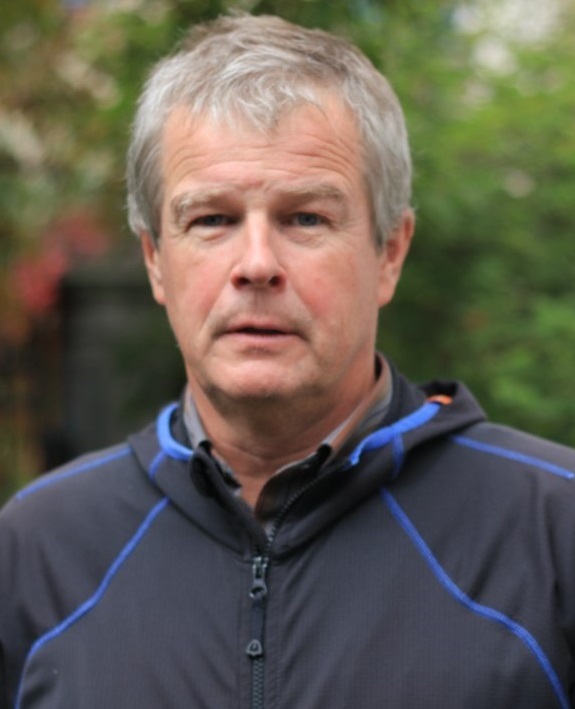
Steven Ongena, University of Zurich and CEPR
Steven Ongena is Professor of Banking in the Department of Banking and Finance at the University of Zurich, a senior chair at the Swiss Finance Institute, a research professor at KU Leuven, a research professor at the NTNU Business School, and a research fellow in financial economics of CEPR. He is also a research professor at the Deutsche Bundesbank and a regular research visitor at the European Central Bank. He is publishing in economics, finance, law and management journals. In 2017, he received an ERC Advanced Grant and in 2012 the NYU-Fordham-RPI Rising Star in Finance Award.
Discussants
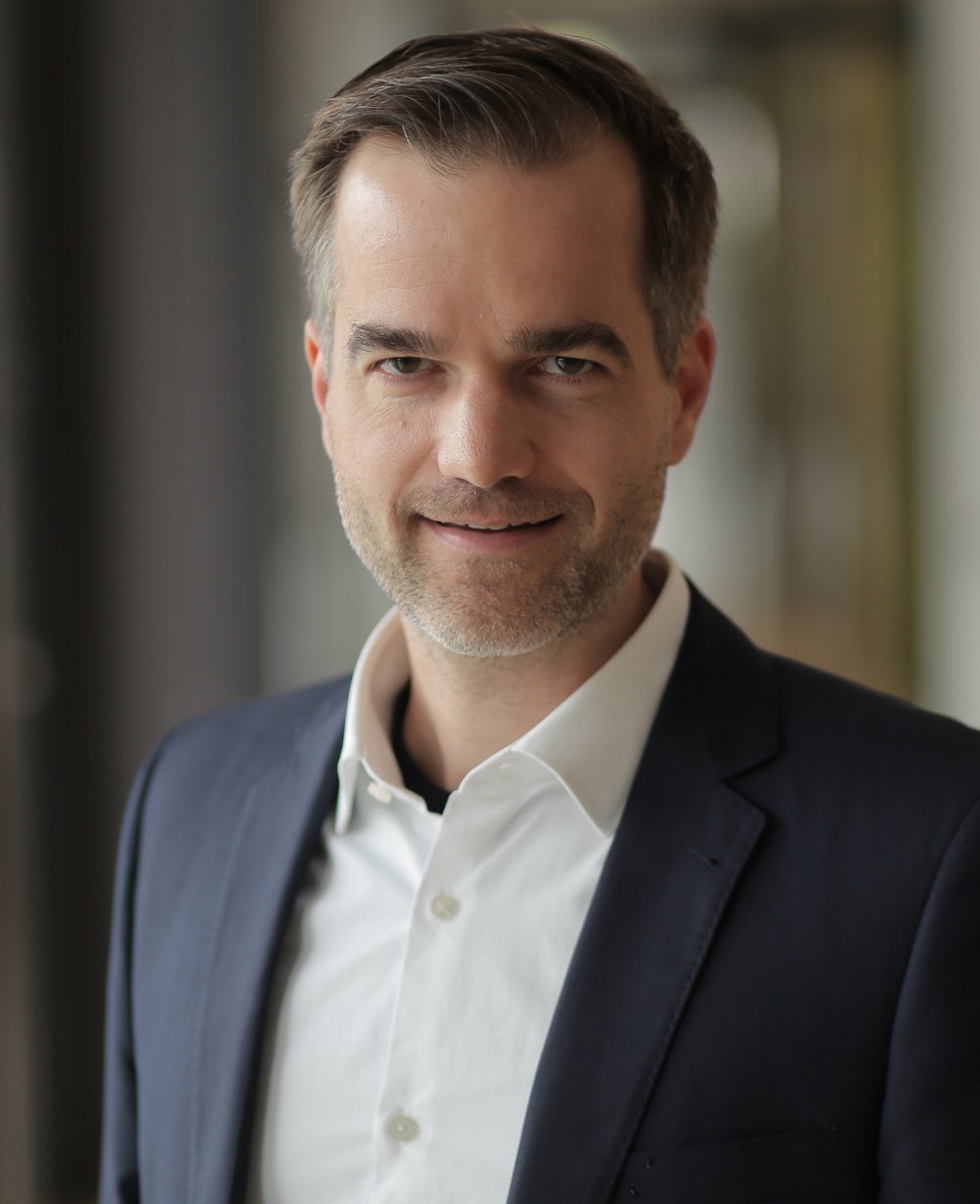
Tobias Berg, Frankfurt School of Finance & Management
Tobias Berg is Professor of Finance and Head of the Finance Department at the Frankfurt School of Finance & Management. His research focuses on corporate finance and financial intermediation with a recent focus on financial technology and climate change. He serves as an Associate Editor at the Review of Financial Studies and he has frequently published in leading international journals such as the Journal of Finance, Journal of Financial Economics, or Review of Financial Studies. He has received the Review of Financial Studies Distinguished Referee Award, was ranked among the Top 10 Economists in Germany, and was awarded a European Research Council Consolidator Grant for his work on Banking and Climate Change. He has won a best teaching award for his courses on corporate finance as well as a star lecturer award for his course on financial intermediation.

Christian Wagner, WU Vienna University of Economic and Business
Christian Wagner is a Professor of Finance at WU Vienna University of Economic and Business and a faculty member at the Vienna Graduate School of Finance (VGSF). Previously, he was an Associate Professor at Copenhagen Business School and before that a post-doctoral researcher at WU Vienna, where he also completed his doctoral studies. His research is in the area of empirical asset pricing with a particular interest in the intersection with corporate finance, monetary policy, and derivatives.
Partners
 |
Center for Financial Frictions (FRIC)
FRIC is a Center of Excellence funded by the Danish National Research Foundation. The center was established in 2012 and investigates the impact of financial frictions on the prices of financial assets, on economic development and on the design and regulation of financial markets. The Center Director is Professor David Lando. For more information about FRIC, please see our website www.fric.dk |
 |
Centre for Economic Policy Research (CEPR) The Centre for Economic Policy Research is a network of over 900 Research Fellows and Affiliates, based primarily in European universities. The Centre coordinates the research activities of its Fellows and Affiliates and communicates the results to the public and private sectors. CEPR is an entrepreneur, developing research initiatives with the producers, consumers and sponsors of research. Established in 1983, CEPR is a European economics research organisation with uniquely wide-ranging scope and activities. The Centre is pluralist and non-partisan, bringing economic research to bear on the analysis of medium- and long-run policy questions. CEPR, 77 Bastwick Street, London, EC1V 3PZ; Tel: 020 7183 8801; Web: www.cepr.org; www.voxeu.org; Twitter: @cepr_org |
 |
Department of Finance, CBS The Department of Finance is an international department that consists of 30 faculty members in Finance and 5 faculty members in Statistics as well as 8 administrative staff. The Department of Finance researches in all financial issues, including issues related to financial markets, securities pricing, risk management, corporate finance and household finance. At the Department of Finance, we offer highly qualified teaching within an extensive number of both the full-time and the part-time programs available at Copenhagen Business School. Furthermore, the Department runs a successful PhD Program with 22 PhD students of different nationalities currently enrolled. |
CBS Capital Four Credit Day
Speakers
- David Lando, Copenhagen Business School
- Bo Becker, Stockholm School of Economics
- Shohini Kundu, UCLA Anderson School of Management
- Michael Schwert, Wharton School of the University of Pennsylvania
- Pete Drewienkiewicz, Redington
- Michael Marsh, Goldman Sachs
- Olivier Sibony, HEC Paris
- Nicolai Nørregaard, Kadeau
Panelists
- Ivan Rasmussen, Polaris
- Robert Wania, Allianz Investment Management SE
- Mikkel Sckerl, Capital Four
- Michael Marsh, Goldman Sachs
- Pete Drewienkiewicz, Redington
- Jim Wiant, Capital Four US
Moderators
- Sandro Näf, Capital Four
- Torben Skødeberg, Capital Four
Programme
08:00 - 08:20:
Coffee and Registration
08:20 - 08:30:
Welcome by Sandro Näf, Co-Founder & CEO, Capital Four
08:30 - 09:00:
David Lando, CBS
50 years of credit risk modeling – what have we learned?
09:00 - 09:30:
Michael Schwert, Wharton School, University of Pennsylvania
CLO Performance
(with Larry Cordell, Federal Reserve Bank of Philadelphia and Michael Roberts, Wharton School, University of Pennsylvania)
09:30 - 10:00:
Shohini Kundu, UCLA
The Externalities of Fire Sales: Evidence from Collateralized Loan Obligations
10:00 - 10:30:
Coffee Break
10:30 - 11:00:
Bo Becker, Stockholm School of Economics
Disruption and Credit Markets
(with Victoria Ivashina, Harvard University)
11:00 - 11:30:
Investor interview
Pete Drewienkiewicz, CIO-Global Assets, Redington
11:30 - 12:30:
Lunch
12:30 - 13:00:
Practitioner credit overview past 12 months
Michael Marsh, Global Co-head of Credit Finance and Global Co-head of the Alternative Capital Solutions Group, Goldman Sachs
13:15 - 14:00:
Break-out Session 1
1. Private Debt: An institutionalizing asset class, moderated by Sandro Näf, Capital Four (room SP202)
Panelists:
Ivan Rasmussen, Advisor, Polaris Equity
Robert Wania, Vice President Investment Strategy, Allianz Investment Management
Mikkel Sckerl, Partner & Portfolio Manager, Capital Four
2. Multi Asset Credit: How to implement & how to evaluate, moderated by Torben Skødeberg, Co-Founder & Portfolio Manager, Capital Four (room SP201)
Panelists:
Michael Marsh, Goldman Sachs
Pete Drewienkiewicz, CIO-Global Assets, Redington
Jim Wiant, CEO, Capital Four US
14:00 - 14:30:
Coffee Break
14:30 - 15:15:
Olivier Sibony, HEC Paris
Noise: A Flaw in Human Judgment
15:15 - 16:00:
Break-out Session 2
1. ESG & Credit: The need for a thoughtful approach, moderated by Torben Skødeberg, Capital Four (room SP202)
Panelists:
Alejandro Gonzalez, Vice President, Fixed Income & Multi-Asset Investment Research, JP Morgan Private Bank, London
Sabrina Fox, CEO, European Leveraged Finance Association
Laust Johnsen, Partner & Portfolio Manager, Capital Four
2. "Noise" - from theory to practise re investment decision, moderated by Sandro Näf, Capital Four (room SP201)
Panelists:
Olivier Sibony, HEC Paris
René Kallestrup, Partner & Portfolio Manager, Capital Four
Timothy Smith, Head of Strategic Planning, Capital Four
16:00 - 16:30:
Nicolai Nørregaard, Head Chef and Co-Founder of the 2-starred Michelin restaurant Kadeau
Interviewer: Rasmus Palsgård, Journalist, Feinschmeckeren
16:30 - 16:35:
Closing Remarks by Sandro Näf, Capital Four
16:35 - 17:30:
Networking and Refreshments
Venue
Solbjerg Plads 3
Room: SP202
2000 Frederiksberg
Denmark
Accommodation
The Scandic Falkoner is a newly refurbished hotel centrally located in the charming theatre district of Frederiksberg. The hotel is located only a 5 minutes’ walk from CBS and the Frederiksberg Metro Station.
The Hotel Danmark is a luxury boutique hotel located in the city center. You can reach CBS by means of the Rådhuspladsen Metro Station.
This non-smoking hotel with a modern design lies close to Forum Metro Station, adjacent to the Copenhagen lakes. Travel time to CBS by metro is 3 minutes.
Speaker bios
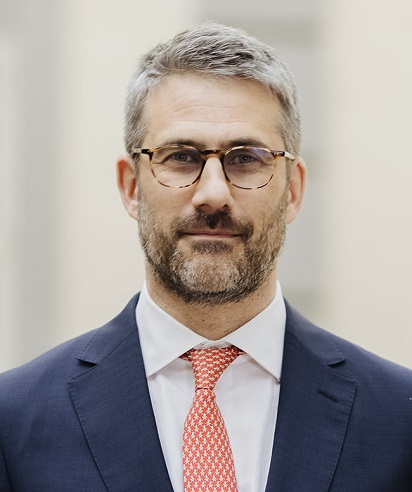 |
Bo Becker, Stockholm School of Economics Bo Becker is the Cevian Capital Professor of Finance in the Department of Finance at the Stockholm School of Economics. His research is on corporate finance, especially corporate credit markets. Recent topics include corporate bank lending and bond issuance through the business cycle, credit ratings, covenant structures of loans and bonds, in-court and out-of-court restructuring, and the impact of Covid-19 on corporate credit markets. Bo Becker has been awarded several prizes and grants, including the Standard Life Prize for best paper in the ECGI Finance WP series, the Nordea Price for Best Corporate Finance Paper at the European Finance Association's annual meeting and the Lamfalussy Research Fellowship from the European Central Bank. Bo Becker holds a Ph.D. from the University of Chicago. He previously worked at the University of Illinois and at Harvard Business School. Bo Becker has served as an associate editor of the Review of Financial Studies, Management Science and Financial Management, is a Research Fellow of Center for Economic Policy Research (CEPR), a Research Member of the European Corporate Governance Institute (ECGI). He serves as a member of the Advisory Scientific Committee of the European Systemic Risk Board as well as on several non-for profit and corporate boards, including the Royal Stockholm Philharmonic Orchestra. He advises SEB and AP7 on sustainability issues. |
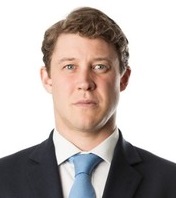 |
Pete Drewienkiewicz, Redington Pete Drewienkiewicz is the Chief Investment Officer for Global Assets at Redington. In his role, he advises a range of wealth managers, insurance companies and public sector pension schemes with combined assets of more than £400bn. He also has oversight of Redington’s 25-person research platform across both manager and asset class research and is ultimately accountable for the asset class implementations that are recommended to clients. |
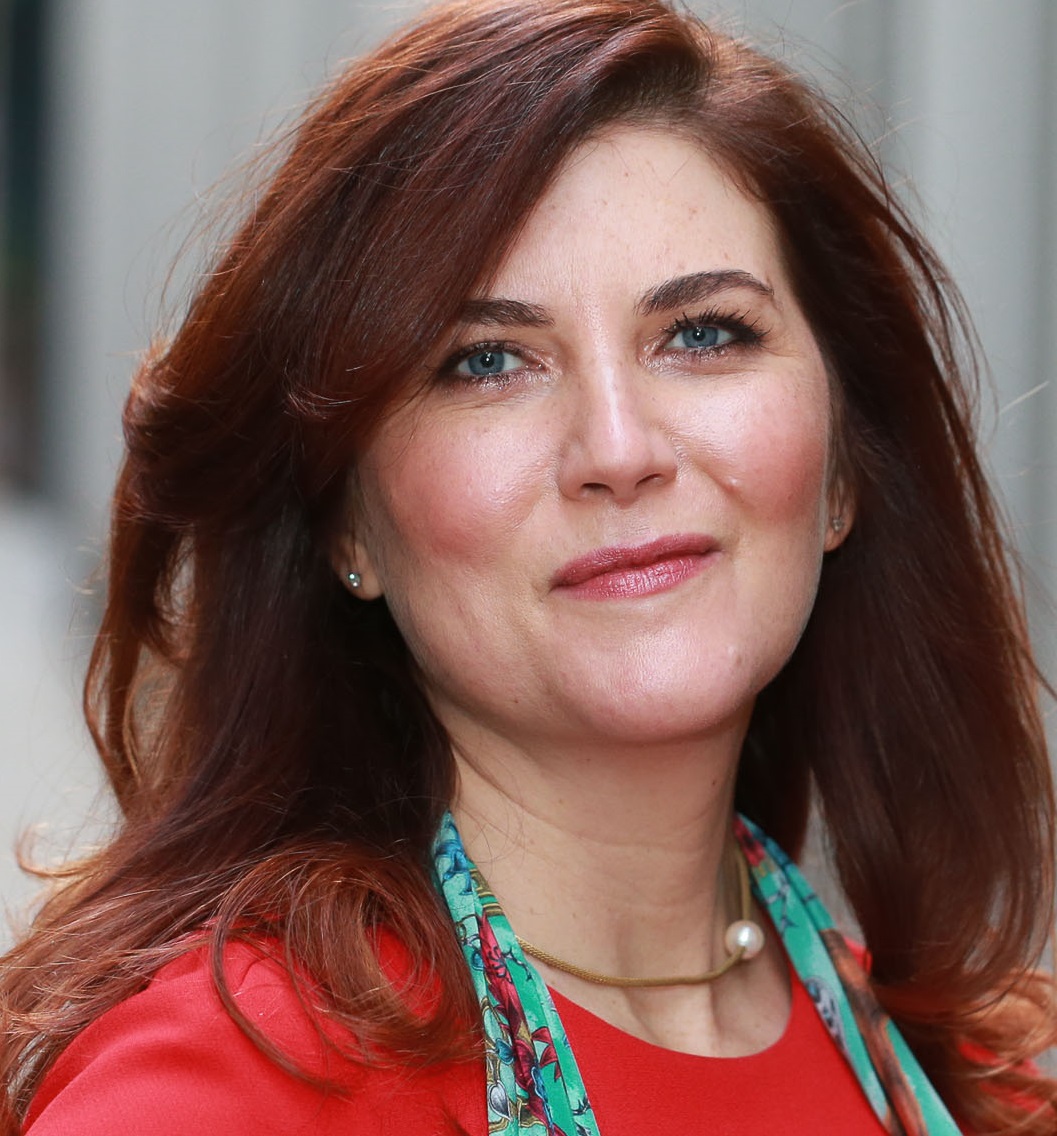 |
Sabrina Fox, European Leveraged Finance Association Sabrina Fox is a recognized expert in the European leveraged finance market focused on increasing transparency, improving disclosure standards, and educating market participants on the importance of lender protections in documentation. Most recently, Sabrina was Head of European High Yield Research for Covenant Review. Prior to that, she was Counsel with DLA Piper in London |
 |
Alejandro Gonzalez, JP Morgan Private Bank, London Alejandro Gonzalez is responsible for the fund selection and ongoing investment due diligence of fixed income and multi-asset mutual funds, active ETFs and hedge funds for the Firm's Global Wealth Management business with a specific focus on J.P. Morgan’s International Private Bank which encompasses the J.P. Morgan EMEA, Latin America and Asia Pacific Private Banks. His objective is to service the wide range of clients the Firm has across the wealth spectrum and geographies by sourcing, researching and maintaining the multi-centibillion dollar investment platform. He joined J.P. Morgan in 2015 in the New York City office conducting investment research, manager selection and ongoing due diligence for the fixed income business with a focus on J.P. Morgan’s U.S. Wealth Management channels. Prior to joining J.P. Morgan, Alejandro helped manage global brand and celebrity strategy at Creative Artists Agency (CAA), modernize and streamline the grant strategy at The Gordon and Betty Moore Foundation, advocate with the National Hispanic Media Coalition on issues of fairness and representation of Hispanics in the USA and worked on the Emmy winning Greater than AIDS campaign with The Kaiser Family Foundation. Alejandro holds a Bachelor of Arts degree from Stanford University. |
 |
Laust Johnsen, Capital Four Laust Johnsen joined Capital Four during 2007 from Nordea Investment Management where he has worked as a quantitative Analyst with responsibilities for various risk management and performance analysis tasks. Since 2007, Laust has held various positions within Capital Four Management, first as a High Yield analyst covering individual credits and sectors, then as head of trading as well as the interim COO, overseeing the investment operations team, and now as a Portfolio Manager on the Investment Committee. Laust holds an M.Sc. in Economics from University of Copenhagen. |
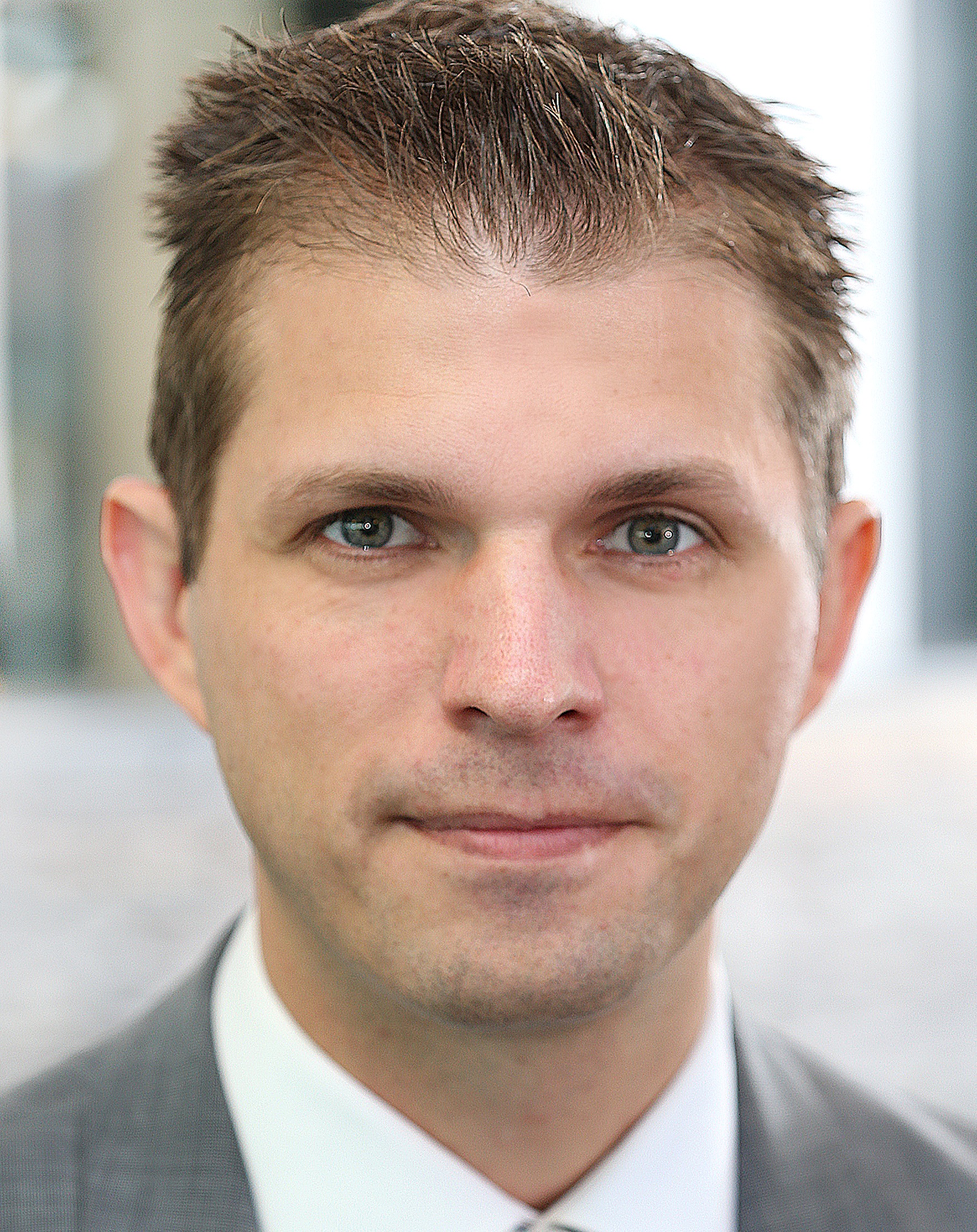 |
René Kallestrup, Capital Four René Kallestrup joined Capital Four Management in February 2012 after finishing a PhD at the Central Bank of Denmark. In 2011 he did a PhD internship at PIMCO in London and Newport Beach, focusing on tail risk hedging of client portfolios. His previous experience includes tenure with the Central Bank of Iceland, where he worked alongside the International Monetary Fund (‘IMF’) and a position as a currency strategist with Danske Bank, Capital Markets. René holds a PhD in sovereign and bank credit risk from the Copenhagen Business School and a Master’s degree from Aarhus University. |
 |
Shohini Kundu, UCLA Anderson School of Management Shohini Kundu’s research focuses on financial intermediation, regulation, corporate finance and macroeconomics. Shohini Kundu was a finalist in the ECB’s Young Economists’ Competition, and received the BlackRock Applied Research Award, Qatar Centre for Global Banking and Finance Young Economist Prize, WFA Award for Outstanding Research, Eugene F. Fama Fellowship, and Stigler Center Dissertation Award for her doctoral work. She holds a PhD in Finance and MBA from the University of Chicago Booth School of Business, and a BA in Economics from Cornell University. |
 |
David Lando, Copenhagen Business School David Lando is a Professor of Finance at Copenhagen Business School and Director of the Center for Financial Frictions (FRIC) funded by the Danish National Research Foundation. He holds a Master's degree from the joint mathematics-economics program at the University of Copenhagen and a PhD in statistics from Cornell University. His main area of research in finance is credit risk modelling and risk management and some of his work has appeared in Econometrica, Journal of Financial Economics and Review of Financial Studies. He is the author of a monograph on credit risk modeling published by Princeton University Press. He is a visiting scholar at, among other places, Princeton University, the Federal Reserve Board in Washington, and The Federal Reserve Bank of New York. Before joining Copenhagen Business School, he was a Professor at the Department of Applied Mathematics and Statistics at the University of Copenhagen. |
 |
Michael Marsh, Goldman Sachs Michael Marsh serves as a member of the Firmwide Capital Committee, Investment Banking Division Executive Committee, Partnership Committee, Investment Banking Division Risk Council, Goldman Sachs International Bank Management Committee, Goldman Sachs International Bank Risk Committee and Goldman Sachs International Risk Committee. Previously, Michael was responsible for EMEA Credit Finance. He joined Goldman Sachs in 2006 and was named managing director in 2008 and partner in 2014. Michael is part of the global giving circle for Mothers 2 Mothers, a charity that aims to limit the spread of HIV. Michael earned a BSc (Hons) in Genetics from Newcastle University in 1997. |
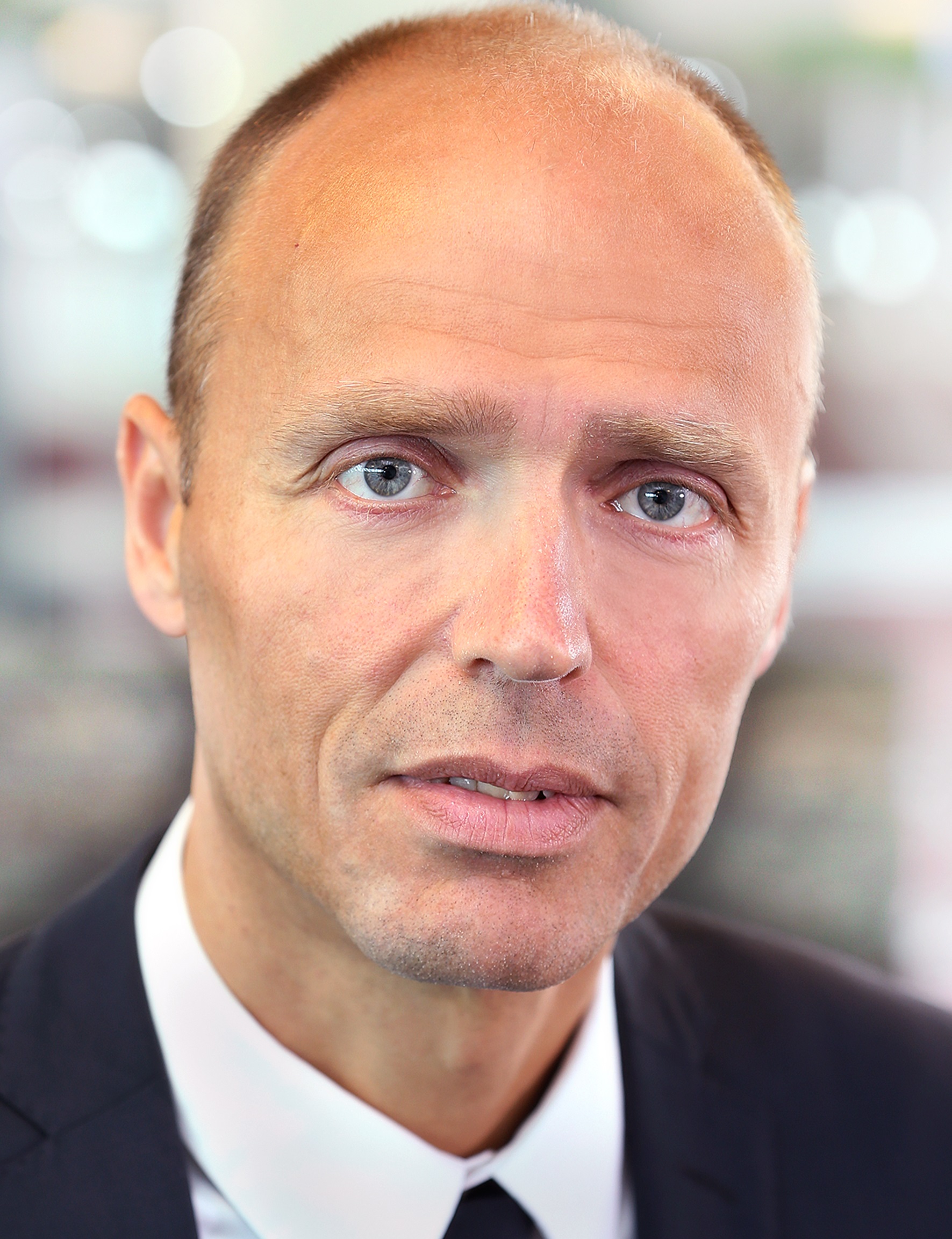 |
Sandro Näf, Capital Four Sandro Näf is a Co-Founder of Capital Four. He joined from Nordea Investment Management, where he was responsible for the European High Yield business, which he initiated in 1999. Prior to that, Sandro worked with Credit Suisse in New York (fka BEA Associates), London (CS-FirstBoston) and Zürich in various roles in Fixed Income and Corporate Finance / Mergers & Acquisitions. He holds an MBA from the Tepper School of Business at Carnegie Mellon University and a BS in Computer Science from ITR Rapperswil. |
 |
Nicolai Nørregaard, Kadeau Nicolai Nørregaard is the co-owner and head chef at Kadeau on Bornholm and Kadeau in Copenhagen, both of which have one and two stars respectively in the Michelin Guide. Nicolai worked his way up within the industry, first working summers at Svaneke Pakhus and winters at Cofoco in Copenhagen before acquiring restaurant Strandhytten on Bornholm, and later opening Kadeau on Bornholm in 2007 and Kadeau in Copenhagen in 2011. |
 |
Rasmus Palsgård, Feinschmeckeren Rasmus Palsgård is a trained journalist specialized in gastronomy and has kept meticulous accounts of his experiences on his website Feinschmeckeren.dk. He takes great interest in fine foods and wine and the people behind the scenes, whose effort to deliver a unique, high-quality work of art is often featured on Feinschmeckeren.dk. Rasmus is also chairman of the Danish jury for the Nordic guide 360 Eat Guide, which ranks the best restaurants in the Nordic region with an emphasis on sustainability. In addition to writing about gastronomy, Rasmus also enjoys cooking, even competing on MasterChef 2016, where he reached the final round. |
 |
Ivan Rasmussen, Polaris Ivan Rasmussen joined Polaris in June 2015 as an Advisor. Prior to joining Polaris, he has a long international banking career within investment banking behind him involving foreign exchange and interest rate products as well as an extensive credit, LBO financing and M&A experience in Nordea Markets Investment Banking. Amongst his 40 years in banking, he has been working internationally in Frankfurt, New York, London and Singapore for 10 years combined. After his departure from Nordea in the spring of 2015, he has established his own advisory company. |
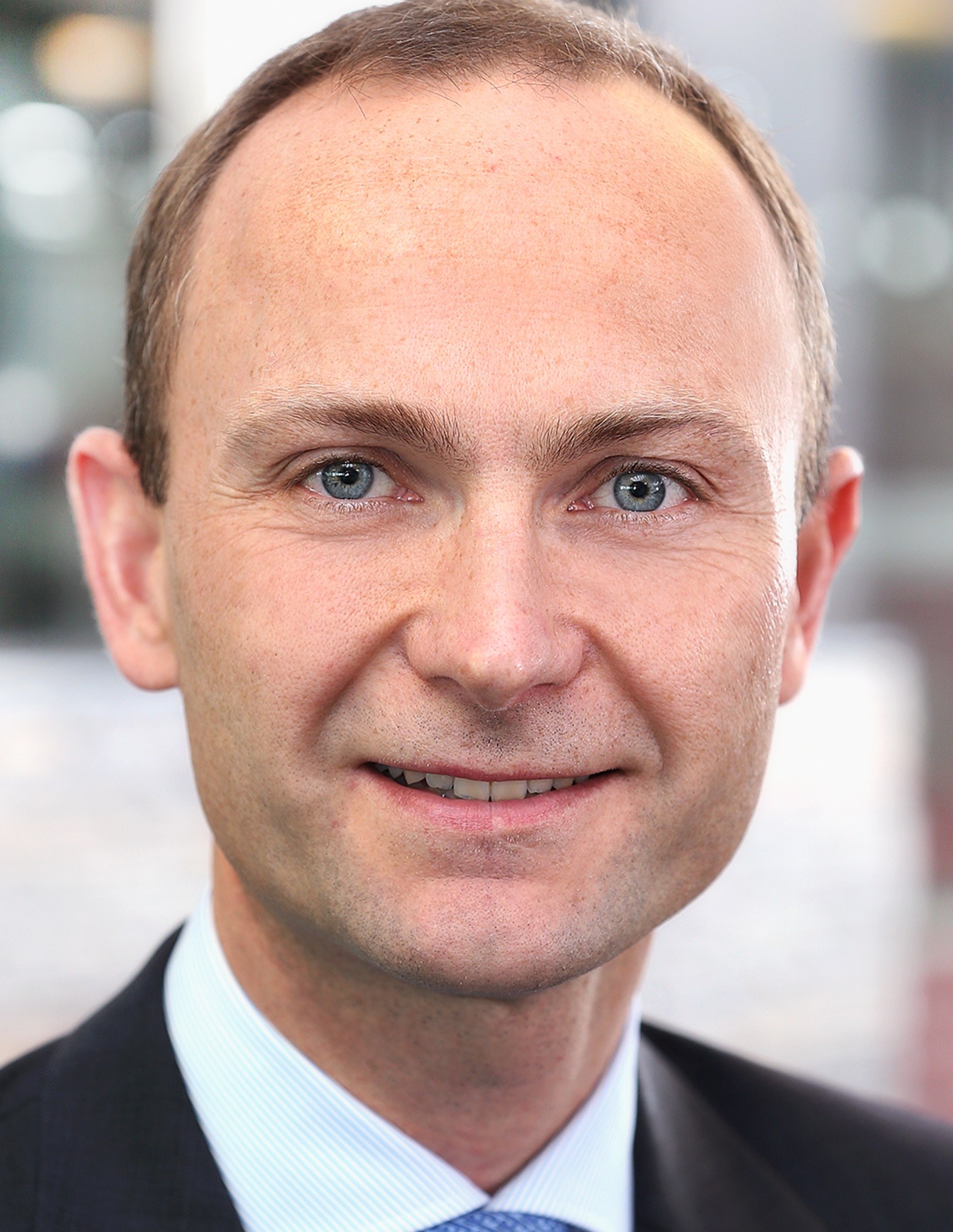 |
Mikkel Sckerl, Capital Four Mikkel joined Capital Four from Saxo Bank in 2013. While at Saxo Bank Mikkel was initially responsible for the bank’s corporate finance and debt advisory business and subsequently for its loan origination. Prior to Saxo Bank Mikkel spent 8 years with Citibank, primarily based in London, where he as a Director and Senior Credit Officer held responsibility for a portfolio of the bank’s leveraged loan and stressed/distressed private debt in EMEA. Mikkel holds a MS in Finance & Economics from Warwick Business School & University of Warwick and a MS in Economics from University of Copenhagen. |
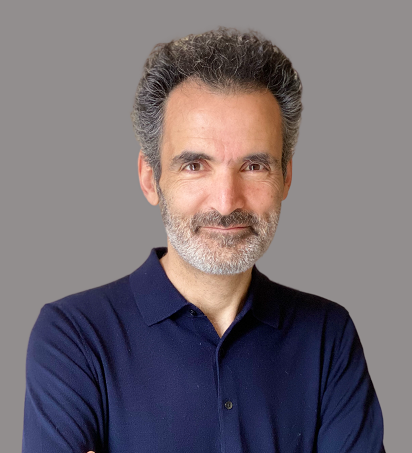 |
Olivier Sibony, HEC Paris Olivier Sibony is a professor, author and advisor specializing in the quality of strategic thinking and the design of decision processes. He is also an Associate Fellow of Saïd Business School in Oxford University, and has taught at London Business School, among others. Previously, he was a Senior Partner at McKinsey & Company, where he led Global Strategy Practice and of the Consumer Goods & Retail Sector. His latest book, Noise: A Flaw in Human Judgment, co-authored with Daniel Kahneman and Cass R. Sunstein, has appeared on the New York Times bestseller list. Olivier builds on this research and experience to advise senior leaders on strategic and operational decision-making. Olivier Sibony is a graduate of HEC Paris and holds a Ph. D. from Université Paris-Dauphine. He is a knight in the French Order of the Légion d’Honneur. |
 |
Torben Skødeberg, Capital Four Torben Skødeberg joined Capital Four in July 2007 from Nordea Investment Management, where he had day to day portfolio management responsibilities for some of Nordea’s High Yield / Hedge Fund portfolios and covered several industry sectors as a research analyst. Torben joined Nordea from SEB Asset Management Copenhagen, where he was responsible for risk management. Prior to SEB Torben worked at Nordea Group Treasury, where he developed credit risk models. He holds a MS in Mathematics and Economics from Copenhagen University and is a CFA Charterholder. |
 |
Timothy Smith, Capital Four Tim Smith joined Capital Four in June 2018. Prior to joining Capital Four, Tim worked for Stamford Associates, an investment consultancy based in London, where he was head of fixed income and responsible for researching and advising a range of institutional clients on investment strategy, manager selection and portfolio structure and implementation. Tim had previously worked for Aon Hewitt, a global investment consultancy, and began his investment career as a trader focused on fixed income and volatility arbitrage within the Kyte Group, a London-based inter-dealer broker, within their proprietary capital division. Tim holds a BSc in Financial Economics from the University of Essex. |
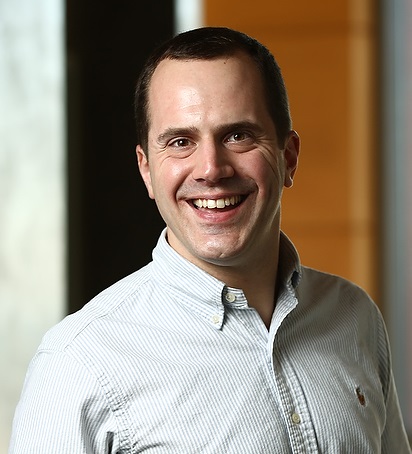 |
Michael Schwert, Wharton School of the University of Pennsylvania Michael Schwert is an Assistant Professor of Finance at the Wharton School of the University of Pennsylvania. His research focuses on how capital market imperfections affect the cost of debt financing, credit supply, and corporate issuance decisions. Michael Schwert received his PhD from Stanford Graduate School of Business. |
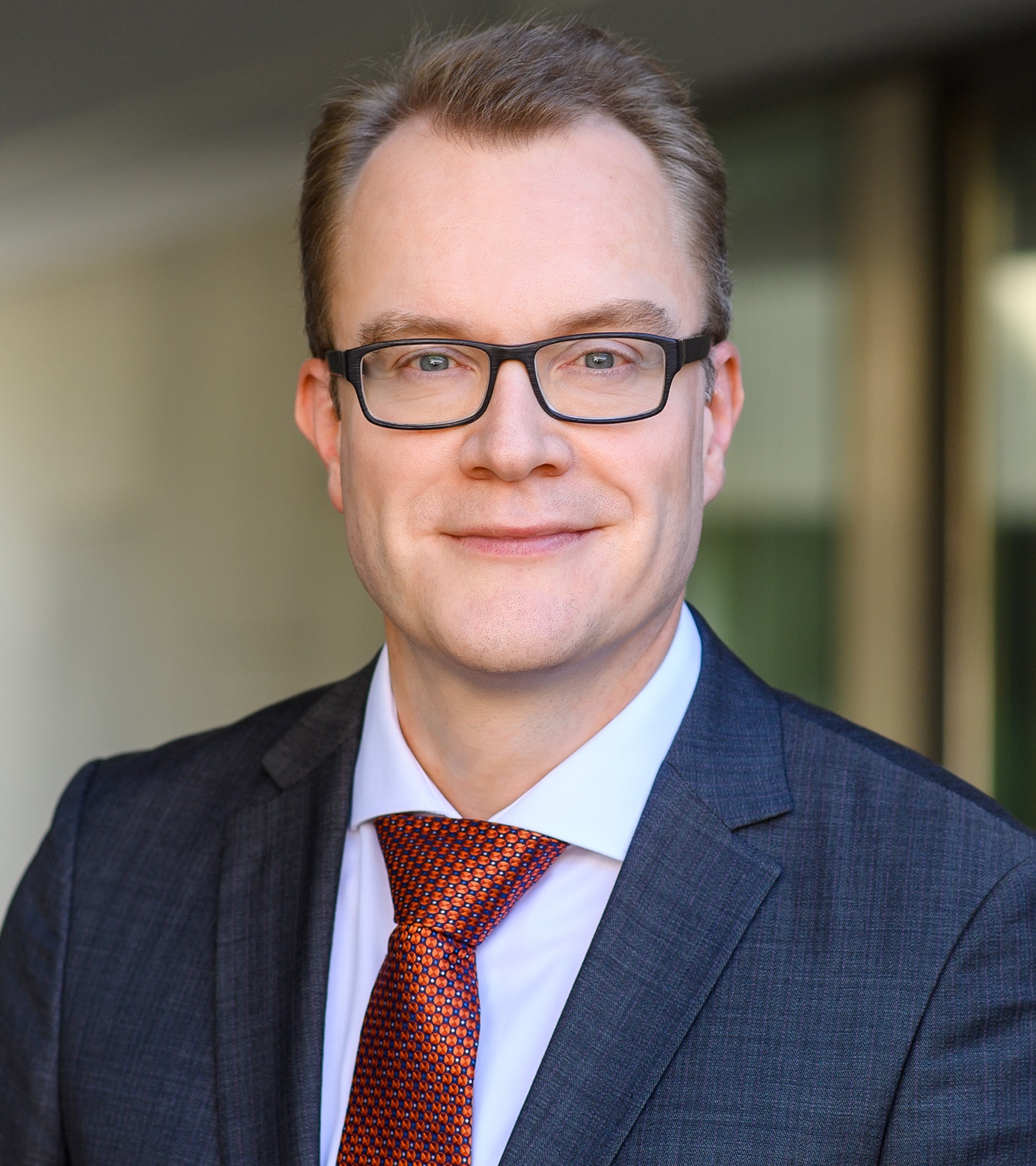 |
Robert Wania, Allianz Investment Management SE Robert Wania is Vice President at Allianz Investment Management SE. His focus is on managing a portfolio of European middle market lending funds for the Allianz insurance entities. Robert joined Allianz Group in 2007 and held various senior and leadership positions in the finance function of Allianz SE. Prior to joining the Private Debt department Robert has been working as Principal at AIM's US branch where he was steering the public fixed income portfolio of Allianz Life. Robert started his career with Deutsche Bank and holds a degree in business administration and a PhD in statistics from University of Dresden, Germany. |
 |
Jim Wiant, Capital Four US Jim Wiant joined Capital Four in 2021 from MidOcean Credit Partners in New York where he was a founding member and senior portfolio manager responsible for US CLOs and high yield portfolio management. Prior to joining MidOcean Credit Partners in 2009, Jim held buy-side credit investor roles at Deerfield Capital and Golub Capital. Jim began his career in corporate strategy and M&A at Deutsche Bank and Salomon Smith Barney. Jim graduated from Georgetown School of Business in 1996. |
FRIC'21 Conference on Financial Frictions
Center for Financial Frictions (FRIC) and The Department of Finance, Copenhagen Business School hosted its eighth conference in a series of international conferences on financial frictions. Due to the Covid-19 situation, the FRIC'21 Conference on Financial Frictions was hosted as a 'hybrid conference', where attendees had the option of physical or virtual participation.
Keynote
- Andrei Shleifer, Harvard University
Speakers
- Bo Becker, Stockholm School of Economics and CEPR
- Ian Dew-Becker, Northwestern University, Kellogg School of Management
- Wenxin Du, University of Chicago, Booth School of Business and CEPR
- Terrence Hendershott, University of California, Berkeley
Discussants
- Jens Dick-Nielsen, Copenhagen Business School
- Niels Joachim Gormsen, University of Chicago, Booth School of Business
- Christian Heyerdahl Larsen, Indiana University, Kelley School of Business
- Burton Hollifield, Carnegie Mellon University, Tepper School of Business
The conference was organized by Copenhagen Business School, Center for Financial Frictions (FRIC), the Department of Finance, and Centre for Economic Policy Research (CEPR).
The FRIC’21 conference took place in Copenhagen and online on August 20, 2021.
Programme
Friday, August 20, 2021
|
11:45 |
- |
12:50 |
Welcome lunch and registration
|
|
12:50 |
- |
13:00 |
Welcome and opening remarks
|
|
13:00 |
- |
13:45 |
Bo Becker, Stockholm School of Economics and CEPR The Resilience of the U.S. Corporate Bond Market During Financial Crises (with Efraim Benmelech, Northwestern University)
Discussant: Jens Dick-Nielsen, Copenhagen Business School
|
|
13:45 |
- |
14:30 |
Ian Dew-Becker, Northwestern University, Kellogg School of Management
Discussant: Niels Joachim Gormsen, University of Chicago, Booth School of Business
|
|
14:30 |
- |
15:00 |
Coffee break
|
|
15:00 |
- |
15:45 |
Wenxin Du, University of Chicago, Booth School of Business and CEPR (with Ricardo Correa and Gordon Liao, Board of Governors of the Federal Reserve System)
Discussant: Christian Heyerdahl-Larsen, Indiana University, Kelley School of Business
|
|
15:45 |
- |
16:30 |
Terrence Hendershott, University of California, Berkeley Do we need dealers in OTC markets?
Discussant: Burton Hollifield, Carnegie Mellon University, Tepper School of Business
|
|
16:30 |
- |
17:15 |
Keynote: Expectations of Fundamentals and Stock Market Puzzles Andrei Shleifer, Harvard University (with Pedro Bordalo, University of Oxford, Nicola Gennaioli, Bocconi University and, Rafael La Porta, Brown University)
|
|
17:15 |
- |
17:20 |
Closing remarks Peter Feldhütter, David Lando and Lasse Heje Pedersen
|
|
17:20 |
- |
18:00 |
Reception |
Venue: Hotel Scandic Falkoner/Online
Virtual attendance
We will livestream the event to those participants who cannot attend physically. You need to have signed up in order to receive the link to attend the online event. Please note the following:
- The livestream is not recorded, so this is a purely ‘live’ event, and previous parts of the program cannot be reviewed. Kindly note that virtual participants may not record the event locally on their computers either.
- For an optimal streaming experience, we recommend one of these browsers Chrome, Firefox or Edge (preferably in an updated version).
- You can interact with the physical conference and the presenters by means of a Q/A function when the conference is live. We will monitor and select questions from the virtual audience and pose these to the presenters to the extent that this is possible.
On-site attendance
We follow the current guidelines to ensure a Covid-safe environment on location. Please make sure to keep distance to other participants, follow the signs, and frequently use hand sanitizers in the area.
Please note that if the authorities’ guidelines change, we will make necessary adjustments to the physical event.
Transport: How to get to the on-site venue
If you are attending in-person, the easiest way to reach Hotel Scandic Falkoner is by metro. Frederiksberg Metro Station is located nearby within a walking distance of approx 5 minutes.
Please refer to the Journey Planner here for more precise directions with public transport.
We hope for your understanding for this revised concept of the conference, and we are looking forward to welcoming you to the FRIC’21 Conference on Financial Frictions in one of these formats.
Accommodation
Below we have listed some suggestions for different accommodation options in Copenhagen.
Skt. Petri Hotel
This hotel is located down town in a newly refurbished building originally designed by W. Lauritzen. It is Denmark's principal designer boutique hotel.
Brøchner hotels
Hotel Danmark is a 4* luxury boutique hotel.
Hotel SP34 is a 4* boutique hotel situated in Copenhagen's old Latin Quarter.
Avenue Hotel is a 3* hotel located in walking/biking distance from Copenhagen Business School
Mid-range
Ibsens Hotel
Ibsens hotel is also located 5 minutes away from the center of Copenhagen and offers easy access to Copenhagen Business School by means of the Nørreport Metro Station.
Low-range
Cab Inn Scandinavia Hotel
This no-smoking hotel with a modern design lies close to Forum Metro Station, adjacent to the Copenhagen lakes. Travel time to CBS by metro is 3 minutes.
For other accommodation options, please see the Visit Copenhagen website
Speaker bios
Keynote Speaker
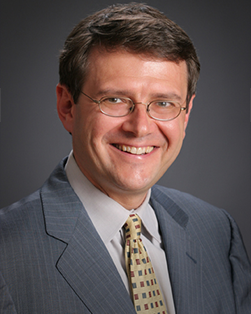 |
Andrei Shleifer, Harvard University |
Speakers
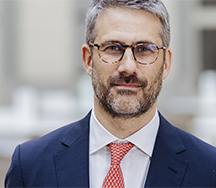 |
Bo Becker, Stockholm School of Economics Bo Becker is the Cevian Capital Professor of Finance in the Department of Finance at the Stockholm School of Economics. The department of finance is housed in the Swedish House of Finance. Professor Becker's research is on corporate finance, especially corporate credit markets. Recent topics include corporate bank lending through the business cycle, conflicts of interest in credit ratings industry, the covenant structure of loans and bonds, and comparing out-of-court restructuring to bankruptcy. His research has been published in the Journal of Finance, the Journal of Monetary Economics, the Journal of Financial Economics, the Review of Financial Studies and other journals. Professor Becker has been awarded several prizes and grants, including the Standard Life Prize for best paper in the ECGI Finance WP series, the Nordea Price for Best Corporate Finance Paper at the European Finance Association's annual meeting and the Lamfalussy Research Fellowship from the European Central Bank. Professor Becker holds a masters degree from the Stockholm School of Economics and a Ph.D. from the University of Chicago. He previously worked at the University of Illinois and at Harvard Business School. Professor Becker has served as an associate editor of the Review of Financial Studies, Management Science and Financial Management, is a Research Fellow of Center for Economic Policy Research (CEPR), a Research Member of the European Corporate Governance Institute (ECGI). He has served on the board of directors of the Swedish National Debt Office, as a Faculty Research Fellow at the National Bureau of Economic Research (NBER), and as an expert for the inquiry into possible Swedish membership of the EU Banking Union. He serves as a member of the Advisory Scientific Committee of the European Systemic Risk Board as well as on several non-for profit and corporate boards, including the Royal Stockholm Philharmonic Orchestra. |
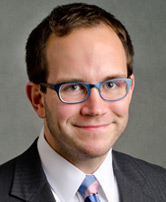 |
Ian Dew-Becker, Northwestern University, Kellogg School of Management Ian Dew-Becker is on the faculty at Northwestern University Kellogg School of Management. His current work focuses on time-varying risk over the business cycle, both in the context of financial markets and the real economy. |
 |
Wenxin Du, University of Chicago, Booth School of Business Wenxin Du is an associate professor of finance and Fama Faculty Fellow at the University of Chicago Booth School of Business, a faculty research fellow at the National Bureau of Economic Research, and a research affiliate at the Center for Economic Policy Research. She studies global currency and fixed income markets, financial regulations, and emerging market finance. She was named the Alfred P. Sloan Foundation Research Fellow 2019-2021. In addition, she has won several top academic awards for her research, including the Amundi Pioneer First Prize and AQR Insight Award Top Prize for her work on deviations from covered interest rate parity. Du’s findings have been featured in Bloomberg, Financial Times, The Economist, and The Wall Street Journal, and her work has been published in leading academic journals. She also serves as an associate editor at the Journal of International Economics. Prior to joining Booth, Du held the position of Principal Economist at the Board of Governors of the Federal Reserve System, where she was responsible for monitoring and analyzing developments in international financial markets for the FOMC. She was also a central bank research fellow at the Bank for International Settlements in Basel, Switzerland. During her doctoral studies, she interned at the International Monetary Fund. She earned an A.M. and a Ph.D. both in Economics from Harvard University, and a B.A. in Economics and Mathematics from Swarthmore College with Highest Honors. |
 |
Terrence Hendershott, University of California, Berkeley Terrence Hendershott currently is the Willis H. Booth Chair in Banking and Finance as a professor at the Haas School of Business at the University of California, Berkeley. His research interests include information technology’s impact and role in financial markets, the structure and regulation of financial markets, and the interaction among trading, liquidity, and asset prices. His writing has appeared in national newspapers and magazines and his academic work has been published in numerous scholarly journals. He has consulted for various financial markets, regulators, and investment firms. |
Discussants
 |
Jens Dick-Nielsen, Copenhagen Business School |
 |
Niels Joachim Gormsen, University of Chicago, Booth School of Business |
| Burton Hollifield, Carnegie Mellon University, Tepper School of Business | |
| Christian Heyerdahl Larsen, Indiana University, Kelley School of Business |
Partners
 |
Center for Financial Frictions (FRIC)
FRIC is a Center of Excellence funded by the Danish National Research Foundation. The center was established in 2012 and investigates the impact of financial frictions on the prices of financial assets, on economic development and on the design and regulation of financial markets. The Center Director is Professor David Lando. For more information about FRIC, please see our website www.fric.dk |
 |
Centre for Economic Policy Research (CEPR) The Centre for Economic Policy Research is a network of over 900 Research Fellows and Affiliates, based primarily in European universities. The Centre coordinates the research activities of its Fellows and Affiliates and communicates the results to the public and private sectors. CEPR is an entrepreneur, developing research initiatives with the producers, consumers and sponsors of research. Established in 1983, CEPR is a European economics research organisation with uniquely wide-ranging scope and activities. The Centre is pluralist and non-partisan, bringing economic research to bear on the analysis of medium- and long-run policy questions. CEPR, 77 Bastwick Street, London, EC1V 3PZ; Tel: 020 7183 8801; Web: www.cepr.org; www.voxeu.org; Twitter: @cepr_org |
 |
Department of Finance, CBS The Department of Finance is an international department that consists of 30 faculty members in Finance and 5 faculty members in Statistics as well as 8 administrative staff. The Department of Finance researches in all financial issues, including issues related to financial markets, securities pricing, risk management, corporate finance and household finance. At the Department of Finance, we offer highly qualified teaching within an extensive number of both the full-time and the part-time programs available at Copenhagen Business School. Furthermore, the Department runs a successful PhD Program with 22 PhD students of different nationalities currently enrolled. |
FRIC'19 Conference on Financial Frictions
Center for Financial Frictions (FRIC) and The Department of Finance, Copenhagen Business School hosted its seventh conference in a series of international conferences on financial frictions.
This year’s conference focused on illiquidity, volatility and irrationality in financial markets.
Keynotes
- Richard Cantor, Moody's Corporation
- Peter DeMarzo, Stanford Graduate School of Business
- Gary Gorton, Yale School of Management
- Ralph S. J. Koijen, University of Chicago Booth School of Business and CEPR
Speakers
- Hui Chen, MIT Sloan School of Management
- Pierre Collin-Dufresne, EPFL and CEPR
- Edith Hotchkiss, Boston College, Carroll School of Management
- Hanno Lustig, Stanford Graduate School of Business
- Ian Martin, London School of Economics and CEPR
- Michael Schwert, Wharton School, University of Pennsylvania
Discussants
- Itay Goldstein, Wharton School, University of Pennsylvania
- Konstantin Milbradt, Northwestern University, Kellogg School of Management
- Stephen Schaefer, London Business School
- Paul Schneider, USI Lugano and SFI
- Daniel Streitz, Copenhagen Business School and DFI
- Andrea Vedolin, Boston University, Questrom School of Business and CEPR
The conference was organized by Copenhagen Business School, Center for Financial Frictions (FRIC), the Department of Finance, and Centre for Economic Policy Research (CEPR).
The FRIC’19 conference took place in Copenhagen on August 15-16, 2019.
Programme 2019
Thursday, August 15, 2019
|
08:15 |
- |
09:00 |
Registration and coffee
|
|
09:00 |
- |
09:15 |
Welcome and opening remarks
SESSION ON UNCERTAINTY IN FINANCIAL MARKETS |
|
09:15 |
- |
10:00 |
Keynote: Aggregate Information Dynamics |
|
10:00 |
- |
10:45 |
Liquidity, Volume, and Volatility Pierre Collin-Dufresne, EPFL and SFI (with Vincent Bogousslavsky, Boston College, Carroll School of Management) Slides Pierre Collin-Dufresne
Discussant: Itay Goldstein, University of Pennsylvania, Wharton School
|
|
10:45 |
- |
11:15 |
Coffee break
|
|
11:15 |
- |
12:00 |
Volatility, Valuation Ratios, and Bubbles: An Empirical Measure of Market Sentiment
Discussant: Paul Schneider, USI Lugano and SFI
|
|
12:00 |
- |
13:15 |
Lunch
SESSION ON FRICTIONS IN FIXED INCOME MARKETS |
|
13:15 |
- |
14:00 |
Pledgeability and Asset Prices: Evidence from the Chinese Corporate Bond Markets Hui Chen, MIT Sloan School of Management
Discussant: Konstantin Milbradt, Northwestern University, Kellogg School of Management
|
|
14:00 |
- |
14:45 |
Post-FOMC Announcement Drift in U.S. Bond Markets Hanno Lustig, Stanford Graduate School of Business
Discussant: Andrea Vedolin, Boston University, Questrom School of Business
|
|
14:45 |
- |
15:15 |
Coffee break
KEYNOTE ON EXCHANGE RATES AND ASSET PRICES |
|
15:15 |
- |
16:00 |
Keynote: Exchange Rates and Asset Prices in a Global Demand System Ralph Koijen, University of Chicago Booth School of Business (with Motohiro Yogo, Princeton University)
|
|
16:00 |
- |
17:00 |
Cocktail reception |
| Friday, 16 August, 2019 | |||
|
08:15 |
- |
09:00 |
Registration and coffee SESSION ON DEBT MARKET FINANCING |
|
09:00 |
- |
09:45 |
Keynote: The Credit Rating Industry: A Decade After the Global Financial Crisis |
|
09:45 |
- |
10:30 |
Financial Contracts and Interest Rates: Implications for Risk-Sharing and Monetary Policy Transmission (with Michael Roberts, Wharton School, University of Pennsylvania)
Discussant: Daniel Streitz, Copenhagen Business School and DFI |
|
10:30 |
- |
11:00 |
Coffee break
|
|
11:00 |
- |
11:45 |
Dealer Behavior and the Trading of Newly Issued Corporate Bonds Discussant: Stephen Schaefer, London Business School
|
|
11:45 |
- |
12:30 |
Keynote: Debt Ratchets and Welfare Destruction Peter DeMarzo, Stanford Graduate School of Business |
|
12:30 |
- |
12:45 |
Closing remarks David Lando and Lasse Heje Pedersen |
|
12:45 |
- |
14:00 |
Lunch (to stay or to go) |
Venue
Solbjerg Plads 3
Room: SP201
2000 Frederiksberg
Denmark
Accommodation
Below we have listed some suggestions for different accommodation options in Copenhagen.
Skt. Petri Hotel
This hotel is located down town in a newly refurbished building originally designed by W. Lauritzen. It is Denmark's principal designer boutique hotel.
Brøchner hotels
Hotel Danmark is a 4* luxury boutique hotel.
Hotel SP34 is a 4* boutique hotel situated in Copenhagen's old Latin Quarter.
Avenue Hotel is a 3* hotel located in walking/biking distance from Copenhagen Business School
Mid-range
Ibsens Hotel
Ibsens hotel is also located 5 minutes away from the center of Copenhagen and offers easy access to Copenhagen Business School by means of the Nørreport Metro Station.
Low-range
Cab Inn Scandinavia Hotel
This no-smoking hotel with a modern design lies close to Forum Metro Station, adjacent to the Copenhagen lakes. Travel time to CBS by metro is 3 minutes.
For other accommodation options, please see the Visit Copenhagen website
Speaker Bios
Keynote Speakers
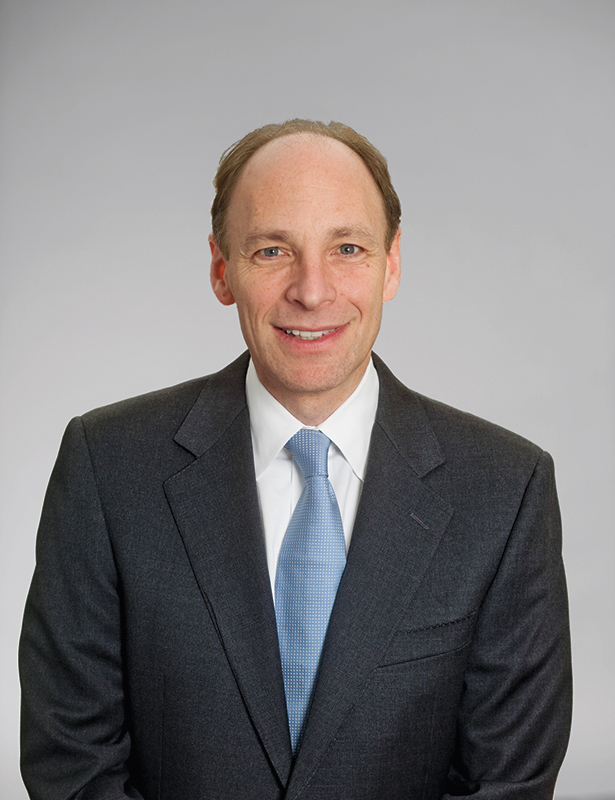 |
Richard Cantor serves as Chief Credit Officer for Moody’s Corporation and Moody’s Investors Service, a position he has held since 2008. In this role, Mr. Cantor manages the Credit Strategy and Standards Group, which is responsible for the credit rating agency’s global credit strategy and thematic research, the quality and consistency of its ratings across regions and sectors, and the procedures, methodologies, models, and tools used in the determination of ratings. From 2009 to 2019, Mr. Cantor also served as Moody’s Corporation’s Chief Risk Officer and in this role, led the firm’s global risk management function. Appointed by the U.S. State Department in 2015, Mr. Cantor served a three-year term in the Asia-Pacific Economic Cooperation (APEC) Business Advisory Council (ABAC), during which he chaired ABAC’s Financial and Economic Working Group. Prior to joining Moody’s, Mr. Cantor held a variety of positions at the Federal Reserve Bank of New York, including in the Capital Markets Group and the Discount Window, and was an adjunct professor at New York University’s and Columbia University’s business schools. He has also taught Economics at UCLA and The Ohio State University. Mr. Cantor holds BA degrees in English and Economics from Tufts University and a PhD in Economics from Johns Hopkins University.
|
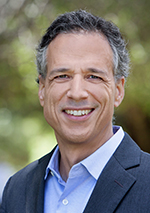 |
Peter DeMarzo is the Staehelin Family Professor of Finance and former Senior Associate Dean at the Graduate School of Business, Stanford University. He is past President of the American Finance Association and Western Finance Association, and a Research Associate at the National Bureau of Economic Research. Professor DeMarzo’s research is in the area of corporate finance, asset securitization, and contracting, as well as market structure and regulation. His recent work has examined issues of the optimal design of contracts and securities, leverage dynamics and the role of bank capital regulation, and the influence of information asymmetries on stock prices and corporate investment. He has research awards including the Western Finance Association Corporate Finance Best-Paper Award, the Charles River Associates Best-Paper Award, and the Barclays Global Investors/Michael Brennan Best-Paper of the Year Award from The Review of Financial Studies. |
 |
Gary Gorton is The Frederick Frank Class of 1954 Professor of Finance at the Yale School of Management, which he joined in August 2008. Prior to joining Yale, he was the Robert Morris Professor of Banking and Finance at The Wharton School of the University of Pennsylvania, where he taught during 1984-2008. Dr. Gorton has done research in many areas of finance and economics, including both theoretical and empirical work. He is the author of Slapped by the Invisible Hand: The Panic of 2007 (Oxford University Press), Misunderstanding Financial Crises (Oxford University Press), The Maze of Banking (Oxford) and Fighting Financial Crises, with Ellis Tallman (University of Chicago Press). Dr. Gorton has consulted for the U.S. Board of Governors of the Federal Reserve System, various U.S. Federal Reserve Banks, the Bank of England, the Bank of Japan, and the Central Bank of Turkey. He was a consultant to AIG Financial Products during 1996-2008. Dr. Gorton received his doctorate in Economics from the University of Rochester. In the field of economics, he received Master's degrees at the University of Rochester and Cleveland State University, and also received a Master's degree in Chinese Studies from the University of Michigan.
|
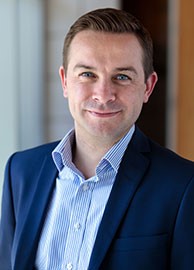 |
Ralph S. J. Koijen is the AQR Capital Management Professor of Finance and Fama Faculty Fellow at the University of Chicago Booth School of Business. He is also a Research Associate at the National Bureau of Economic Research and a Research Fellow of the Center for Economic Policy Research. He serves as an Editor of the Review of Financial Studies. Professor Koijen’s research focuses on asset pricing, insurance, and econometrics. His research has been published in the American Economic Review, Econometrica, the Journal of Political Economy, the Journal of Finance, the Review of Financial Studies, and the Journal of Financial Economics. His research has been covered in popular media, such as the Financial Times, the Wall Street Journal, and The Economist. Professor Koijen was awarded the 2019 Fischer Black Prize by the American Finance Association, given biennially to the top financial economics scholar under the age of 40. Before joining Chicago Booth in 2018, Professor Koijen was a Professor of Finance at the London Business School and NYU Stern, and an Assistant and Associate Professor of Finance at Chicago Booth. He received his undergraduate degree in Econometrics from Tilburg University and his Ph.D. in Finance from Tilburg University.
|
Speakers
 |
Hui Chen is an Associate Professor of Finance at the MIT Sloan School of Management and a research associate at the NBER. Chen’s research focuses on financing frictions in financial markets and the macro economy. Some of his recent projects study the impact of trading halts such as circuit breakers on market dynamics, and the role of Chinese repo markets in shadow banking. He also has research that integrates machine learning techniques with finance and economics, with applications in structural model selection and estimation, credit risk forecasting, and portfolio management. He is the recipient of the Smith Breeden Prize in 2011, among other scholarly awards. He has served on the editorial boards of the Journal of Finance, Review of Financial Studies, Management Science, Journal of Banking and Finance, and Review of Asset Pricing Studies. Chen holds a BA in economics and finance from Sun Yat-Sen University, an MS in mathematics from the University of Michigan, and a PhD in finance from the University of Chicago.
|
 |
Pierre Collin-Dufresne is a Professor at the Swiss Finance Institute of the École Polytechnique Fédérale de Lausanne. He has published in leading academic journals such as Econometrica, The American Economic Review, and The Journal of Finance and won various research awards including Amundi Smith Breeden Prizes. He has served as director of the American Finance Association, director of the Western Finance Association, associate editor for several leading finance journals, and has been a member of the Center of Economic Policy Research and of the National Bureau of Economic Research. Before joining the SFI, he was the Carson Family Professor of Business at Columbia University. He previously held professorships at the Haas School of Business of UC Berkeley and at Carnegie Mellon University. Professor Collin-Dufresne also worked in the Quantitative Strategies group of Goldman Sachs Asset Management and as consultant for the Federal Reserve Bank of New York and the European Central Bank, as well as for Cornerstone Research.
|
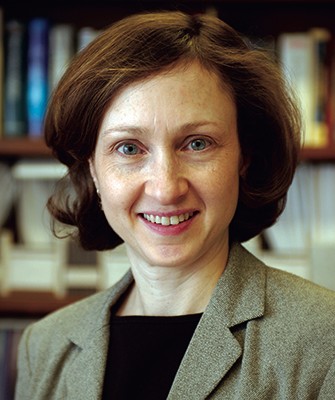 |
Edith Hotchkiss is a Professor of Finance at the Carroll School of Management at Boston College, where she teaches courses in corporate finance, valuation, and restructuring. She received her AB in engineering and economics from Dartmouth College and her PhD in finance from NYU’s Stern School of Business. Prior to entering academics, she worked in consulting and for the Financial Institutions Group of Standard & Poor’s Corporation. Professor Hotchkiss’s research covers topics including: corporate financial distress and restructuring; the efficiency of Chapter 11 bankruptcy; and trading in corporate debt markets. Her work has been published in leading finance journals including the Journal of Finance, Journal of Financial Economics, and Review of Financial Studies. She has served on the national board of the Turnaround Management Association, and as a consultant to FINRA on fixed income markets. She has also served as an advisor in several recent Chapter 11 cases.
|
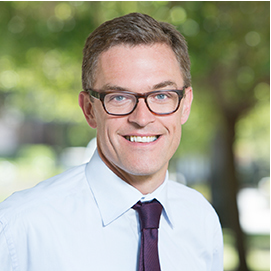 |
Hanno Lustig Stanford Graduate School of Business Hanno Lustig has worked at the intersection of macroeconomics and finance. Recently, his research has focused on understanding the forces that determine exchange rates in currency markets. His research has shown how currencies have different risk characteristics that are determined by a country's role in the global economy. These risk characteristics help to understand the behavior of exchange rates. In addition, Lustig has explored the impact of government guarantees on the pricing of tail risk borne by large financial institutions. More recently, Lustig has also worked on understanding the determinants of a firm's volatility (volatility of sales, cash flows, stock returns etc.).
|
|
|
Ian Martin is a professor in the Department of Finance at the London School of Economics. Prior to joining the LSE, he was an Assistant and then Associate Professor at Stanford GSB and, earlier, a bond option and swaption trader at Goldman Sachs International in London. He has a PhD in economics from Harvard, an MSc in economics from the LSE, and an MA and MMath in mathematics from Cambridge. |
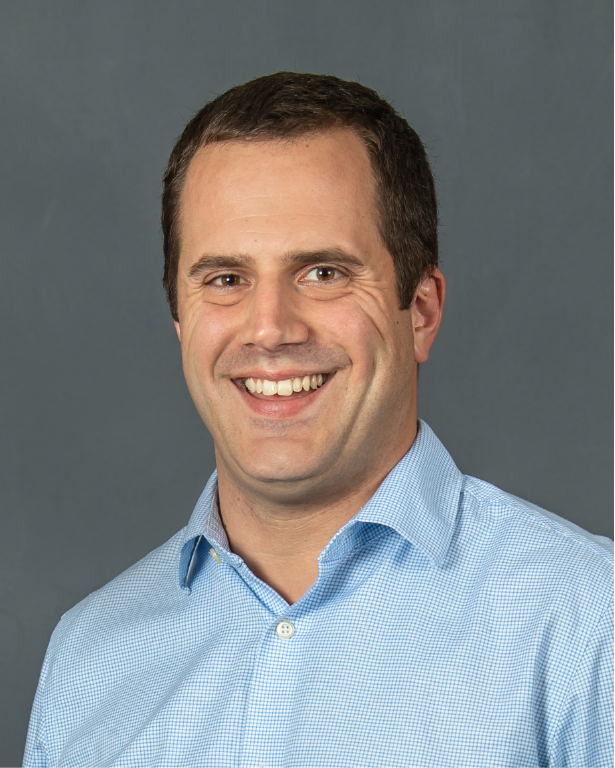 |
Michael Schwert is an Assistant Professor of Finance at the Wharton School of the University of Pennsylvania. His research focuses on frictions in the debt markets and their effects on asset prices and the behavior of borrowers and lenders. He received his PhD from Stanford Graduate School of Business.
|
Discussants
 |
Itay Goldstein is the Joel S. Ehrenkranz Family Professor in the Finance Department at the Wharton School of the University of Pennsylvania. He is also the coordinator of the Ph.D. program in Finance. He holds a secondary appointment as a Professor of Economics at the University of Pennsylvania. He has been on the faculty of the Wharton School since 2004. Professor Goldstein earned his Ph.D. in Economics in 2001 from Tel Aviv University. He is an expert in the areas of corporate finance, financial institutions, and financial markets, focusing on financial fragility and crises and on the feedback effects between firms and financial markets. His research has been published in top academic journals, including the American Economic Review, the Journal of Finance, the Journal of Financial Economics, the Review of Economic Studies, and the Review of Financial Studies. His research has also been featured in the popular press in the Economist, Wall Street Journal, Financial Times, Bloomberg, Forbes, National Public Radio, and others. Professor Goldstein is the Executive Editor of the Review of Financial Studies, where he was an editor before for five years. He also served as an editor of the Finance Department in Management Science and an editor of the Journal of Financial Intermediation. He has served as an academic advisor at the Federal Reserve Banks of New York, Philadelphia, and Richmond, the Bank of Canada, and the Committee for Capital Markets Regulation. He was the co-founder and the first president of the Finance Theory Group. He is a director of the American Finance Association and the Western Finance Association and has been a director of the Financial Intermediation Research Society. He has taught various undergraduate, M.B.A., Ph.D., and executive education courses in finance and economics. Prior to joining Wharton, Professor Goldstein has served on the faculty of Duke University’s Fuqua School of Business. He had also worked in the research department of the bank of Israel.
|
|
|
Konstantin Milbradt Professor Milbradt's research interests are in financial economics, specifically in how financial frictions affect asset prices and corporate decisions. In his recent work, he theoretically investigates how coordination amongst investors makes some government bonds safe. Professor Milbradt holds a PhD from Princeton University and a BA from Oxford University (UK). Before joining Kellogg School of Management, he served as an Assistant Professor of Finance at the MIT Sloan School of Management.
|
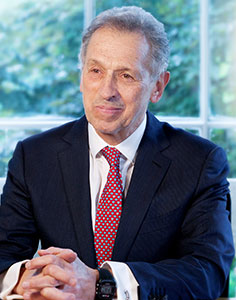 |
Stephen Schaefer Professor has published widely on fixed income markets, risk management, credit risk and financial regulation. His research includes a study on corporate debt default in the US over the past 150 years, which was awarded first prize in the 2011 Fama/DFA Award for the Best Paper Published in the Journal of Financial Economics in the areas of capital markets and asset pricing. He also received the 2015 Jack Treynor Prize from the Q Group, which recognises academic working papers with potential applications in the fields of investment management and financial markets. Professor Schaefer was formerly a faculty member of the Graduate School of Business at Stanford University. He has also been a visiting professor at the Universities of British Columbia, California (Berkeley), Cape Town, Chicago and Venice, where he was recently awarded an Honorary Fellowship. Today, he is the lead Academic Director for the London Business School’s AQR Asset Management Institute. Outside academic life, he has consulted widely for a variety of financial institutions and is a co-author of two major reports for the Norwegian Ministry of Finance on the management of the Norwegian Government Pension Fund (the ‘Oil Fund’). He has also been an independent board member of the Securities and Futures Authority; a senior research advisor to Moody’s KMV; a non-executive director of Leo Fund Management; a trustee-director of Smith Breeden Mutual Funds and a member of Moody’s Academic Research and Advisory Committee.
|
|
|
Paul Schneider is professor for quantitative methods in the finance group at USI Lugano and holds a Swiss Finance Institute senior chair. He has done his PhD in finance in Vienna in 2006. His research interests evolve around model-free asset pricing and methodology. Paul's research has been published in the Journal of Finance, the Journal of Financial Economics, the Review of Financial Studies, as well as the Journal of Econometrics and the Annals of Statistics |
 |
Daniel Streitz, is an assistant professor in the Department of Finance at Copenhagen Business School. His research focuses on financial intermediation and monetary policy and has been published in Review of Financial Studies, Journal of Financial Economics, and other journals. He received his PhD from Humboldt University of Berlin in 2015. Before joining Copenhagen Business School in 2017, Daniel worked as an economic consulting on antitrust cases.
|
 |
Andrea Vedolin is an Associate Professor at Questrom School of Business, Boston University. She is also a Faculty Research Fellow at the National Bureau of Economic Research and a Research Affiliate of the Center of Economic Policy Research. Her research interests are in empirical and theoretical asset pricing. She received her PhD in Economics from the University of Lugano. |
Partners
 |
Center for Financial Frictions (FRIC)
FRIC is a Center of Excellence funded by the Danish National Research Foundation. The center was established in 2012 and investigates the impact of financial frictions on the prices of financial assets, on economic development and on the design and regulation of financial markets. The Center Director is Professor David Lando. For more information about FRIC, please see our website www.fric.dk |
 |
Centre for Economic Policy Research (CEPR) The Centre for Economic Policy Research is a network of over 900 Research Fellows and Affiliates, based primarily in European universities. The Centre coordinates the research activities of its Fellows and Affiliates and communicates the results to the public and private sectors. CEPR is an entrepreneur, developing research initiatives with the producers, consumers and sponsors of research. Established in 1983, CEPR is a European economics research organisation with uniquely wide-ranging scope and activities. The Centre is pluralist and non-partisan, bringing economic research to bear on the analysis of medium- and long-run policy questions. CEPR, 77 Bastwick Street, London, EC1V 3PZ; Tel: 020 7183 8801; Web: www.cepr.org; www.voxeu.org; Twitter: @cepr_org |
 |
Department of Finance, CBS The Department of Finance is an international department that consists of 30 faculty members in Finance and 5 faculty members in Statistics as well as 8 administrative staff. The Department of Finance researches in all financial issues, including issues related to financial markets, securities pricing, risk management, corporate finance and household finance. At the Department of Finance, we offer highly qualified teaching within an extensive number of both the full-time and the part-time programs available at Copenhagen Business School. Furthermore, the Department runs a successful PhD Program with 22 PhD students of different nationalities currently enrolled. |
FRIC'18 Conference on Financial Frictions
August 16-17, 2018, Copenhagen Business School
Center for Financial Frictions (FRIC) and The Department of Finance, Copenhagen Business School hosted its sixth conference in a series of international conferences on financial frictions.
This year’s conference focused on asset pricing, liquidity and monetary policy.
Keynotes
- Tim Bollerslev, Duke University
- John Geanakoplos, Yale University
- Maureen O’Hara, Cornell University
- Suresh Sundaresan, Columbia Business School
Speakers
- Susan Christoffersen, University of Toronto, Rotman School of Management
- Bryan T. Kelly, Yale School of Management
- Sydney Ludvigson, New York University
- Pedro Matos, University of Virginia, Darden School of Business
- Albert J. Menkveld, VU University Amsterdam and CEPR
- Anders B. Trolle, HEC Paris
Discussants
- Svetlana Bryzgalova, Stanford Graduate School of Business
- Peter Feldhütter, Copenhagen Business School
- Grigory Vilkov, Frankfurt School of Finance & Management
- Ingrid Werner, The Ohio State University, Fisher College of Business
- Paul Whelan, Copenhagen Business School
- Josef Zechner, WU (Vienna University of Economics and Business) and CEPR
The conference was organized by Copenhagen Business School, Center for Financial Frictions (FRIC), the Department of Finance, and Centre for Economic Policy Research (CEPR).
The FRIC’18 conference took place in Copenhagen on August 16-17, 2018.
Programme 2018
| 08:15 | - | 09:00 | Registration and coffee |
| 09:00 | - | 09:15 | Welcome and opening remarks David Lando and Lasse Heje Pedersen |
| 09:15 | - | 10:00 | SESSION ON MARKET STRUCTURE Keynote: The Passive-Aggressive RevolutionMaureen O’Hara, Cornell University |
| 10:00 | - | 10:45 | Passive-Aggressive Trading: The Supply and Demand of Liquidity by Mutual Funds Susan K. Christoffersen, University of Toronto, Rotman School of ManagementAleksandra A. Rzeznik, Vienna University of Economics and Business(with Donald B. Keim, University of Pennsylvania Wharton, David K. Musto, University of Pennsylvania Wharton) Discussant: Ingrid Werner, The Ohio State University, Fisher College of Business |
| 10:45 | - | 11:15 | Coffee break |
| 11:15 | - | 12:00 | Multi-Class Shares Around the World: The Role of Institutional InvestorsPedro Matos, University of Virginia, Darden School of Business(with Jinhee Kim, University of Virginia Darden, and Ting Xu, University of Virginia Darden) Discussant: Josef Zechner, WU (Vienna University of Economics and Business) and CEPR |
| 12:00 | - | 13:30 | Lunch (standing) |
| 13:30 | - | 14:15 | Market Structure and Transaction Costs of Index CDSsAnders B. Trolle, HEC Paris (with Pierre Collin-Dufresne, EPFL, and Benjamin Junge, EPFL) Discussant: Grigory Vilkov, Frankfurt School of Finance & Management |
| 14:15 | - | 15:00 | SESSION ON ASSET PRICINGCharacteristics Are Covariances: A Unified Model of Risk and Return Bryan T. Kelly, Yale School of Management (with Seth Pruitt, Arizona State University and Yinan Su, University of Chicago, Booth School of Business) Discussant: Svetlana Bryzgalova, Stanford Graduate School of Business |
| 15:00 | - | 15:30 | Coffee break |
| 15:30 | - | 16:15 | SESSION ON CENTRAL BANKS AND FINANCIAL MARKETS Keynote: Leverage Cycles, Credit Surfaces and Central BankingJohn Geanakoplos, Yale University |
| 16:15 | - | 17:15 | Cocktail reception |
| Friday 17 August, 2018 | |||
| 08:15 | - | 09:00 | Registration and coffee |
| 09:00 | - | 09:45 | SESSION ON CENTRAL BANKS AND FINANCIAL MARKETS - CONTINUEDKeynote: Illiquidity, Insolvency and Central Bank Forbearance Suresh Sundaresan, Columbia University (joint with Stefano Corradin, European Central Bank) |
| 09:45 | - | 10:30 | Monetary Policy and Asset Valuation Sydney Ludvigson, New York University(with Francesco Bianchi, Duke University, CEPR, and Martin Lettau, University of California, Haas School of Business, CEPR) Discussant: Paul Whelan, Copenhagen Business School |
| 10:30 | - | 11:00 | Coffee break |
| 11:00 | - | 11:45 | SESSION ON ASSET PRICING - CONTINUED Information Revelation in Decentralized Markets Albert J. Menkveld, VU University Amsterdam and CEPR (with Björn Hagströmer, Stockholm University) Discussant: Peter Feldhütter, Copenhagen Business School |
| 11:45 | - | 12:30 | Keynote: Volume, Volatility and Investor DisagreementTim Bollerslev, Duke UniversityVolume, Volatility and Public News Announcements Generalized Jump Regressions with an Application to Volume-Volatility Relations |
| 12:30 | - | 12:45 | Closing remarks: David Lando and Lasse Heje Pedersen |
| 12:45 | - | 14:15 | Lunch (standing) |
Venue
Flintholm - Stig Lommers Plads 2
2000 Frederiksberg
Denmark
Facilities
The FRIC’16 conference will take place at the delightful new CBS facilities at Flintholm. It is very easy to get there via the Metro and the conference venue is located directly below the metro platform.
Transport
From Copenhagen Airport (Kastrup) to the conference venue: The easiest way to get to CBS Flintholm is by taking the Metro. It takes app. 25 minutes to get to the conference venue at Flintholm from the airport. Directions: take the Metro bound for ‘Vanløse’ and get off at the station ‘Flintholm’. Metro trains depart every 4 to 6 minutes during the day and every 15 minutes in the evening. Remember to buy a ticket before boarding the train. Tickets are available from the DSB ticket office above the railway station in Terminal 3 and at ticket machines at the metro platform.
Finding the conference venue
When you get off the Metro bound for Vanløse, go to the back of the train/platform and take the stairs down one level. The conference venue is located in the large building on your left (away from the train tracks). It says CBS with large white letters on the front windows.
Speaker bios
Keynote Speakers
|
|
Tim Bollerslev is the first Juanita and Clifton Kreps Distinguished Professor of Economics at Duke University, Professor of Finance at the Fuqua School of Business, and Research Director for the Duke Financial Economics Center (DFE). He is an elected fellow of the Econometric Society, the American Statistical Association and the Society for Financial Econometrics, as well as a longtime Research Associate at the National Bureau of Economic Research (NBER), and an International Research Fellow at the Center for Research in Time Series Econometrics (CREATES) at the University of Aarhus, Denmark. Prior to joining Duke, Dr. Bollerslev has held positions as the Sharpe Distinguished Professor of Finance at the Kellogg Graduate School of Management at Northwestern University, and the Commonwealth Professor of Economics at the University of Virginia. Much of Dr. Bollerslev’s research has focused on measuring, modeling and forecasting financial market volatility. Many of the ideas developed by Dr. Bollerslev are now routinely used by economists and finance practitioners all over the world. He has published extensively in all of the leading academic journals in the field, and lectured at numerous international conferences, universities, and other institutions. He is the author of two of the three most cited papers in the Journal of Econometrics, and routinely ranks among the most cited economists in the world. A native of Denmark, Dr. Bollerslev received his M.S. degree in Economics and Mathematics from the University of Aarhus, Denmark, and his Ph.D. degree in Economics from the University of California, San Diego. |
 |
John Geanakoplos is the James Tobin Professor of Economics and co-Director of Hellenic Studies at Yale University, a member of the inaugural Yale Faculty Senate, a Fellow of the American Academy of Arts and Sciences and the Econometric Society, and a recipient of the Samuelson Prize. He is a creator of the theory of Collateral Equilibrium and the Leverage Cycle. From 1990-1994 he was Director of Fixed Income Research at the investment bank Kidder Peabody, and in 1995 he was one of the founders of the hedge fund Ellington Capital Management, where he remains a partner. He was Director of the Cowles Foundation for Research in Economics for 9 years, and director of the Science Steering Committee for the Santa Fe Institute for 6 years. He has testified several times in Congress about mortgage debt forgiveness. He got his BA at Yale, and his PhD at Harvard under Ken Arrow. |
 |
Maureen O’Hara is Purcell Professor of Finance at the Johnson Graduate School of Management, Cornell University and also Professor of Finance at UTS (Sydney). A citizen of both Ireland and the U.S., she received her doctorate from Northwestern University and Honorary Doctorates from Facultés Universitaires Catholiques à Mons (FUCAM), Universität Bern, and University College Dublin. Professor O'Hara is an expert on market microstructure, and she publishes widely in banking and financial intermediaries, law and finance, and experimental economics. She is the author of numerous journal articles as well as the books Market Microstructure Theory (Blackwell: 1995), and High Frequency Trading: New Realities for Traders, Markets, and Regulators (Risk Books: 2013). Her most recent book, Something for Nothing: Arbitrage and Ethics on Wall Street, was published in 2016 by Norton Books. A past President of the American Finance Association, the Western Finance Association and the Financial Management Association, she was Executive Editor of the Review of Financial Studies. Professor O’Hara has served on a variety of corporate boards including NewStar Financial, Teachers Insurance and Annuity Association (TIAA), and Investment Technology Group, Inc. (ITG), where she was Chairman of the Board. She was named to Institutional Investors Trading Technology Top 40 and she is currently an Advisor to Symbiont, a company focusing on blockchain and smart securities. A member of the CFTC-SEC Emerging Regulatory Issues Task Force (the “flash crash” committee), she has also served on the Global Advisory Board of the Securities Exchange Board of India (SEBI), the Advisory Board of the Office of Financial Research, U.S. Treasury, and the SEC Equity Market Structure Advisory Committee. |
 |
Suresh Sundaresan is the Chase Manhattan Bank Foundation Professor of Financial Institutions at Columbia Business School. He is the Faculty Director of the PhD program in Finance and the India Business Initiative (IBI) at Columbia Business School. His most recent working papers are in the areas of bank liability structure, central bank liquidity provision, foreign currency debt and its relationship to creditor rights, safe harbor rights of repo agreements, interest rate swap spreads, and the relationship between Fed funds rates, OIS rates and Treasury rates. He has published in Journal of Finance, Review of Financial Studies, Journal of Financial Economics, Journal of Political Economy, European Economic Review, and other Finance and Economics journals. |
Speakers
 |
Susan Christoffersen is the Vice-Dean of Undergraduate & Specialized Programs and a Professor of Finance at the Rotman School of Management. Her research focuses on mutual funds and the role of financial institutions in capital markets. She has published in top finance journals and cited in The New York Times, International Herald Tribune, Bloomberg News Service, and The Wall Street Journal. Susan has received grants from SSHRC, IFM2, and FQRSC and research awards from Q-Group, Bank of Canada, BSI Gamma Foundation, INQUIRE, and the Swiss Finance Institute. Susan is a member of the Center for Financial Frictions at the Copenhagen Business School and was awarded the Limited Term Professorship by the Canadian Securities Institute Research Foundation in 2005. |
 |
Bryan T. Kelly is Professor of Finance at the Yale School of Management, a Research Fellow at the National Bureau of Economic Research, Associate Director of SOM’s International Center for Finance, and a consultant for AQR Capital Management, LLC. Professor Kelly’s primary research fields are asset pricing and financial econometrics. He is interested in issues related to volatility, tail, and correlation risk in financial markets, predictive methods in high dimensional systems, banking sector systemic risk, financial intermediation, and financial networks. His papers in these areas have been published in the American Economic Review, the Quarterly Journal of Economics, the Journal of Finance, the Journal of Financial Economics, and the Review of Financial Studies, among others. He is an associate editor at the Journal of Finance and the Journal of Business and Economic Statistics. Before joining Yale, Kelly was a professor of finance at the University of Chicago Booth School of Business. He earned a bachelor’s degree in economics from the University of Chicago, a master’s degree in economics from University of California San Diego, and a PhD in finance from New York University’s Stern School of Business. Kelly worked in investment banking at Morgan Stanley prior to pursuing his PhD. |
 |
Sydney Ludvigson is a Professor of economics at New York University and Research Associate at the National Bureau of Economic Research. Her research centers on the interplay between asset markets and macroeconomic activity, with recent applications to the pricing and risk premia of stock, bond, and housing markets, the role of heterogeneity and wealth inequality in housing and stock market valuations, and the dynamic causal effects of uncertainty for business cycle fluctuations. |
 |
Pedro Matos is the Academic Director of Richard A. Mayo Center for Asset Management, holds the John G. Macfarlane Family Chair in Business Administration and is a professor in the Finance area at the University of Virginia, Darden School of Business. His research focuses on the growing importance of institutional investors in financial markets worldwide. His work has been published in top academic journals and been featured also in the press, including in The Economist, The Financial Times and the New York Times. He is a Research Associate at the European Corporate Governance Institute (ECGI) and has received numerous research grants and awards. At Darden, he has won the Wells Fargo Award for Excellence in Course Material Development (twice), the Wells Fargo Award for Outstanding Research Publication and the Darden Multiyear Publications Award. He previously taught at the University of Southern California where he received a Golden Apple teaching award. He holds a PhD in Finance from INSEAD. Prior to his PhD, he worked with the Portuguese Ministry of Finance and consulted for the World Bank. |
 |
Albert Menkveld is Professor of Finance at VU University Amsterdam and Fellow at the Tinbergen Institute. In 2002, he received a Tinbergen PhD from Erasmus University Rotterdam. He was on visiting positions for multiple years at various U.S. schools (NYU, Wharton, and Stanford). Albert's research agenda is focused on securities trading, liquidity, asset pricing, and financial econometrics. He has published in various journals, for example, the Journal of Finance, the Journal of Financial Economics, and the Review of Financial Studies. In 2010 he received a five-year VIDI grant from the Netherlands Organization for Scientific Research (NWO), in 2007 the Pierson medal ('Dutch Bates Clark') from the Royal Dutch Economic Association, in 2003 a Lamfalussy scholarship from the European Central Bank, and in 2001 the Josseph de la Vega Prize from the Federation of European Exchanges. |
 |
Anders B. Trolle is an Associate Professor at HEC Paris. Prior to joining HEC, Anders was an Assistant Professor at the Ecole Polytechnique Fédérale de Lausanne in Switzerland and held a Junior Chair at the Swiss Finance Institute. He received his M.S. from University of Copenhagen and his Ph.D. from Copenhagen Business School. His research has been published in leading academic finance journals such as the Journal of Finance, the Review of Financial Studies, and the Journal of Financial Economics. |
Discussants
 |
Svetlana Bryzgalova is an Assistant Professor of Finance at the Stanford Graduate School of Business. Originally she is from Nizhny Novgorod, Russia, where she studied at the Higher School of Economics, Russia, from which she obtained a BA in Economics (Mathematics) and a MSc in Financial Economics. Svetlana is interested in macro finance, empirical asset pricing and the issues involved in the estimation of these models. She joined the GSB in September 2015 after receiving her PhD and MRes degrees in Economics from London School of Economics. |
 |
Peter Feldhütter is a professor in the Department of Finance at Copenhagen Business School. Before joining Copenhagen Business School, he held a position at London Business School. His research focuses on credit risk and liquidity risk in fixed-income markets, in particular the corporate bond market. His research has been published in Review of Financial Studies, Journal of Financial Economics, and other journals and his work has been covered in the press, including Financial Times and New York Times. Professor Feldhütter has been awarded a number of prizes, including best paper in quantitative investments at WFA, Wharton’s Jacobs Levy Equity Management Center for Quantitative research’s outstanding paper award, and Q Group’s Jack Treynor Prize. |
 |
Grigory Vilkov is the Professor in the Department of Finance at Frankfurt School of Finance & Management. Grigory received his Diploma from the Finance Academy in Moscow, then got an MBA from the University of Rochester William E. Simon School, continued his study in INSEAD to get the M.Sc. and Ph.D. in Management. In 2008 he joined the Goethe University Frankfurt as Assistant Professor and stayed there until 2014, when he moved to Frankfurt School of Finance & Management. In the Fall 2013 he also visited University of Mannheim as Professor of Finance. Starting in 2013 Grigory is acting as principal investigator in the Center of Excellence SAFE (Sustainable Architecture for Finance in Europe). |
|
|
Ingrid M. WERNER is the Martin and Andrew Murrer Professor of Finance at Fisher College of Business, The Ohio State University. Professor Werner’s research interests are primarily in the area of market microstructure where she has studied interdealer trading, institutional trading costs, short selling, dark pools, tick size, disclosure and liquidity, liquidity and asset pricing, and trading fees and intermarket competition. Her work has been published in for example The Journal of Finance, Journal of Financial Economics, Review of Financial Studies, and Journal of Economic Theory. Professor Werner is the President-Elect of the Western Finance Association and a past President of the European Finance Association. She is a non-executive director of the Fourth Swedish AP Fund and is a member of the FINRA Economic Advisory Committee. Professor Werner serves on the prize committee for the Swedish Riksbank Prize in Economic Sciences in Memory of Alfred Nobel. She chairs the scientific advisory board of the Swedish House of Finance (SHoF), serves on the board of Mistra Financial Systems (MFS) at Stockholm School of Economics, the scientific advisory board of the Danish Finance Institute at Copenhagen Business School, and on the editorial board of the Journal of Finance and several other journals. She teaches Trading and Markets to graduate and undergraduate students. |
 |
Paul Whelan's research interests are in the areas of theoretical and empirical asset pricing with a specific focus in fixed income markets. Paul has presented at American Finance Association, Western Finance Association, and European Finance Association meetings, and has received several awards for his research, most recently Best Paper Award at the SFS Cavalcade 2017. |
 |
Josef Zechner is Professor of Finance and Investments at WU (Vienna University of Economics and Business) and speaker of the PhD program Vienna Graduate School of Finance (VGSF). He is Full Member of the Austrian Academy of Sciences and Research Fellow of the Centre for Economic Policy Research (CEPR). Before joining the WU Vienna University of Economics and Business, he was Professor of Finance at the University of Vienna and at the University of British Columbia, Canada. Josef Zechner has published in leading finance and economics journals such as the Journal of Finance, the Journal of Financial Economics, the Journal of Political Economy and the Review of Financial Studies. He was the Managing Editor of the Review of Finance from 2003 to 2012. He is also past president of the European Finance Association (EFA), the German Finance Association (DGF) and the Western Finance Association (WFA) and is currently vice president of the Society for Financial Studies (SFS). He is also a member of the Advisory Scientific Committee (ASC) of the European Systemic Risk Board (ESRB) of the European Central Bank (ECB). His research covers a broad range of topics in the areas of corporate finance, banking and asset management. Prof. Zechner has consulted for various financial institutions. He is also a founding partner and a member of the scientific board of Spängler IQAM Invest GmbH, an Austrian Asset Management Company. |
Partners
 |
Center for Financial Frictions (FRIC)
FRIC is a Center of Excellence funded by the Danish National Research Foundation. The center was established in 2012 and investigates the impact of financial frictions on the prices of financial assets, on economic development and on the design and regulation of financial markets. The Center Director is Professor David Lando. For more information about FRIC, please see our website www.fric.dk |
 |
Centre for Economic Policy Research (CEPR) The Centre for Economic Policy Research is a network of over 900 Research Fellows and Affiliates, based primarily in European universities. The Centre coordinates the research activities of its Fellows and Affiliates and communicates the results to the public and private sectors. CEPR is an entrepreneur, developing research initiatives with the producers, consumers and sponsors of research. Established in 1983, CEPR is a European economics research organisation with uniquely wide-ranging scope and activities. The Centre is pluralist and non-partisan, bringing economic research to bear on the analysis of medium- and long-run policy questions. CEPR, 77 Bastwick Street, London, EC1V 3PZ; Tel: 020 7183 8801; Web: www.cepr.org; www.voxeu.org; Twitter: @cepr_org |
 |
Department of Finance, CBS The Department of Finance is an international department that consists of 30 faculty members in Finance and 5 faculty members in Statistics as well as 8 administrative staff. The Department of Finance researches in all financial issues, including issues related to financial markets, securities pricing, risk management, corporate finance and household finance. At the Department of Finance, we offer highly qualified teaching within an extensive number of both the full-time and the part-time programs available at Copenhagen Business School. Furthermore, the Department runs a successful PhD Program with 22 PhD students of different nationalities currently enrolled. |
FRIC'17: Conference on Financial Frictions
August 17-18, 2017, Copenhagen Business School
Center for Financial Frictions (FRIC) and the ERC project FRICTIONS at The Department of Finance, Copenhagen Business School hosted its fifth conference in a series of international conferences on financial frictions. The conference focused on Financial Institutions: Banking and Asset Management.
Keynotes
- Paul Glasserman, Columbia Business School
- Rafael Repullo, Centro de Estudios Monetarios y Financieros (CEMFI) and CEPR
- Allan Timmermann, Rady School of Management, University of California, San Diego and CEPR
- S. ‘Vish’ Viswanathan, Fuqua School of Business, Duke University
Speakers
- Jennie Bai, Georgetown University
- Miguel Ferreira, Nova School of Business and Economics and CEPR
- Marcin T. Kacperczyk, Imperial College London and CEPR
- Adair Morse, Haas School of Business, University of California, Berkeley
- Martin C. Schmalz, Ross School of Business, University of Michigan
- Ilya Strebulaev, Graduate School of Business, Stanford University
Discussants
- Bo Becker, Stockholm School of Economics and CEPR
- Magnus Dahlquist, Stockholm School of Economics and CEPR
- Pedro Matos, University of Virginia, Darden School of Business
- Emanuel Mönch, Deutsche Bundesbank and CEPR
- Suresh Sundaresan, Columbia Business School
- Morten Sørensen, Copenhagen Business School and CEPR
The conference was organized by Copenhagen Business School, Center for Financial Frictions (FRIC), the ERC project FRICTIONS, and Centre for Economic Policy Research (CEPR).
The FRIC’17 conference took place in Copenhagen on August 17-18, 2017.
Programme 2017
| Thursday 17 August, 2017 | |||
| 08:15 | - | 09:00 | Registration and coffee |
| 09:00 | - | 09:15 | Welcome and opening remarks David Lando and Lasse Heje Pedersen |
| 09:15 | - | 10:00 | SESSION ON COLLATERAL
Keynote: S. ‘Vish’ Viswanathan, Fuqua School of Business, Duke University: Collateral and Corporate Risk Management (joint with Adriano Rampini, Fuqua School of Business, Duke University)
|
| 10:00 | - | 10:45 | SESSION ON COMMON OWNERSHIPMartin C. Schmalz, Ross School of Business, University of Michigan: Common Ownership, Competition, and Top Management Incentives (with Miguel Anton, IESE Business School, Universidad de Navarra; Florian Ederer, Yale University; and Mireia Gine, IESE Business School, University of Navarra, The University of Pennsylvania) Discussant: Morten Sørensen, Copenhagen Business School and CEPR |
| 10:45 | - | 11:15 | Coffee break |
| 11:15 | - | 12:00 | SESSION ON COLLATERAL – CONTINUEDJennie Bai, Georgetown University: Safe Asset Shortages: Evidence from the European Government Bond Lending Market (with Reena Aggarwal, Georgetown University, and Luc Laeven, European Central Bank and CEPR) Discussant: Emanuel Mönch, Deutsche Bundesbank and CEPR |
| 12:00 | - | 13:30 | Lunch (standing) |
| 13:30 | - | 14:15 | SESSION ON FINANCIAL INSTITUTIONSMiguel Ferreira, Nova School of Business and Economics and CEPR: Can Credit Rating Agencies Affect Election Outcomes? (with Igor Cunha, University of Kentucky and Rui Silva, London Business School) Discussant: Bo Becker, Stockholm School of Economics and CEPR |
| 14:15 | - | 15:00 | Ilya Strebulaev, Graduate School of Business, Stanford University: Financing as a Supply Chain: The Capital Structure of Banks and Borrowers (with Will Gornall, University of British Columbia, Sauder School of Business) Discussant: Suresh Sundaresan, Columbia Business School |
| 15:00 | - | 15:30 | Coffee break |
| 15:30 | - | 16:15 | Keynote: Rafael Repullo, Centro de Estudios Monetarios y Financieros (CEMFI) and CEPR: Markets, Banks and Shadow Banks (with David Martinez-Miera, UC3M and CEPR) |
| 16:15 | - | 17:15 | Cocktail reception |
| Friday 18 August, 2017 | |||
| 08:15 | - | 09:00 | Registration and coffee |
| 09:00 | - | 09:45 | SESSION ON MARKET EFFICIENCYKeynote: Paul Glasserman, Columbia Business School: Market Efficiency with Micro and Macro Information (with Harry Mamaysky, Columbia University) |
| 09:45 | - | 10:30 | Marcin T. Kacperczyk, Imperial College London and CEPR: Market Power and Price Informativeness (with Jaromir Nosal, Boston College and Savitar Sundaresan, Imperial College London) Discussant: Pedro Matos, University of Virginia, Darden School of Business |
| 10:30 | - | 11:00 | Coffee break |
| 11:00 | - | 11:45 | SESSION ON INVESTMENTAdair Morse, Haas School of Business, University of California, Berkeley: Impact Investing(with Brad M. Barber, University of California, Davis and Ayako Yasuda, University of California, Davis) Discussant: Magnus Dahlquist, Stockholm School of Economics and CEPR |
| 11:45 | - | 12:30 | Keynote: Allan Timmermann, Rady School of Management, University of California, San Diego and CEPR: Transparency, Investor information acquisition, and money market fund risk rebalancing during the 2011-12 Eurozone crisis (with Emily Gallagher, Washington University, St Louis; Lawrence Schmidt, University of Chicago and Russ Wermers, University of Maryland) |
| 12:30 | - | 12:45 | Closing remarks: David Lando and Lasse Heje Pedersen |
| 12:45 | - | 14:30 | Lunch (standing) |
Venue
Flintholm - Stig Lommers Plads 2
2000 Frederiksberg
Denmark
Facilities
The FRIC’16 conference will take place at the delightful new CBS facilities at Flintholm. It is very easy to get there via the Metro and the conference venue is located directly below the metro platform.
Transport
From Copenhagen Airport (Kastrup) to the conference venue: The easiest way to get to CBS Flintholm is by taking the Metro. It takes app. 25 minutes to get to the conference venue at Flintholm from the airport. Directions: take the Metro bound for ‘Vanløse’ and get off at the station ‘Flintholm’. Metro trains depart every 4 to 6 minutes during the day and every 15 minutes in the evening. Remember to buy a ticket before boarding the train. Tickets are available from the DSB ticket office above the railway station in Terminal 3 and at ticket machines at the metro platform.
Finding the conference venue
When you get off the Metro bound for Vanløse, go to the back of the train/platform and take the stairs down one level. The conference venue is located in the large building on your left (away from the train tracks). It says CBS with large white letters on the front windows.
Speaker bios
 |
Paul Glasserman is the Jack R. Anderson Professor of Business at Columbia Business School. Since 2011, he has also worked part time with the Office of Financial Research, an independent agency housed within the U.S. Treasury department focusing on financial stability. He has held visiting positions at the Federal Reserve Bank of New York, Princeton University, and NYU. Paul is a past recipient of Risk magazine's Quant of the Year Award, and he was awarded the Lanchester Prize for his book on Monte Carlo Methods in Financial Engineering, the Erlang Prize in Applied Probability, and an IMS Medallion from the Institute of Mathematical Statistics Paul chairs the Financial and Business Analytics center within Columbia's Data Science Institute, and he leads the Risk Management Initiative within Columbia Business School's Program for Financial Studies. He was senior vice dean of Columbia Business School in 2004-2008 and served as interim director of the Sanford C. Bernstein & Co. Center for Leadership and Ethics in 2005-2007 |
 |
Rafael Repullo is Professor of Economics and Director of the Centre for Monetary and Financial Studies (CEMFI) in Madrid, Spain. He holds a PhD in Economics from the London School of Economics (LSE), and has worked in the Department of Economics of the LSE and the Research Department of the Bank of Spain. He is Fellow of the Econometric Society and of the European Economic Association, Research Fellow of the Centre for Economic Policy Research (CEPR), member of the Financial Economists Roundtable, founding member of the European Corporate Governance Institute, and Co-Editor of the International Journal of Central Banking. He has been President of the Spanish Economic Association, Executive Vice-President of the Econometric Society and member of the Executive Committee of the European Economic Association. |
 |
Allan Timmermann holds the Atkinson/Epstein Chair at the Rady School of Management at University of California, San Diego where he is a Professor of Finance and Economics. Dr. Timmermann has also taught at the London School of Economics and at Stanford University where he held the position of Kaiser Visiting Professor of Risk and Insurance.Dr. Timmermann received his PhD in Economics from University of Cambridge. In his research, Timmermann uses a mix of theory, data and econometric techniques to understand the behavior of prices and expectations in financial markets. His objective is to understand what determines the movement of security prices and to use this in managing risk, forming portfolios and forecasting future price movements. He has also studied mutual fund and pension fund performance. Timmermann has developed new methods in areas such as forecasting under structural breaks, forecast combinations and evaluation of predictive skills.Timmermann’s research has been published in top journals in finance, economics and statistics, including Econometrica, American Economic Review Quarterly Journal of Economics, Review of Economic Studies, Journal of American Statistical Association, Journal of Finance, Review of Financial Studies, Journal of Financial Economics, and Nature. His book “Economic Forecasting”, co-authored with Graham Elliott, was published by Princeton University Press in April 2016. Dr. Timmermann’s research has been covered in the Wall Street Journal, Financial Times and The Economist Magazine. |
 |
Professor S. “`Vish” Viswanathan is the F.M. Kirby Professor of Investment Banking at the Fuqua School of Business, Duke University. Professor Viswanathan received his Bachelor's Degree in Science (First Class with Distinction) from the University of Bombay, his Master of Management Studies from the Jamnalal Bajaj Institute of Management Studies at the University of Bombay and his Ph.D. in Finance from the Kellogg Graduate School of Management at Northwestern University. Professor Viswanathan was the Distinguished Visiting Scholar at the Federal Reserve Bank of New York in 2015-2016. Professor Viswanathan is a former President of the President of the Financial Intermediation Research Society, a member of the National Bureau of Economic Research and a Fellow of the Financial Theory Group.Professor Viswanathan is a distinguished researcher who work spans a number of different areas. His recent research is on collateral constraints and their effect on risk management and financial intermediation. His recent work argues that financing investment and risk management both use scarce collateral and hence it may be optimal not to manage risk for smaller firms. His recent work on general equilibrium implications of collateral constraints considers the implications of collateral scarcity for prices and interest rates. His prior research has focused on market microstructure and mergers and has been published in the Journal of Finance and Journal of Financial Economics. |
| Speaker Bios | |
 |
Jennie Bai is an assistant professor in Georgetown University. Her research focuses on credit risk and liquidity risk in banking and the fixed-income market. She has published articles in Journal of Finance, Review of Financial Studies, Journal of Financial Economics, Journal of Financial and Quantitative Analysis. Before joining Georgetown, she is an economist at the Federal Reserve Bank of New York. Currently she serves as Advisory Council Member in the Board of Governors of the Federal Reserve, and a visiting scholar to the European Central Bank. She received her Ph.D. from the University of Chicago. |
 |
Miguel A. Ferreira holds the Banco BPI Chair in Finance at Nova School of Business and Economics. He is also a research associate of the European Corporate Governance Institute (ECGI) and the Center for Economic Policy Research (CEPR). He has a PhD in Finance from the University of Wisconsin-Madison, a Master in Economics from Nova School of Business and Economics, and a Licenciatura in Business from ISCTE. He teaches corporate finance at the undergraduate level, and risk management at the graduate level. He also has a vast experience in consultancy for companies, banks, and government agencies. His research interests include corporate finance and governance. His research has been published in top academic journals including the Journal of Finance, Journal of Financial Economics, Journal of Financial and Quantitative Analysis, Review of Finance and Review of Financial Studies. He has been a recipient of several research grants and awards including a European Research Council (ERC) grant |
 |
Marcin T. Kacperczyk is Professor of Finance at Imperial College London and Research Associate at Centre for Economic Policy Research. His research interests include financial institutions, asset pricing, risk management, institutional investors, and behavioral finance. His research has been published in Econometrica, Journal of Finance, Journal of Financial Economics, Quarterly Journal of Economics, and the Review of Financial Studies, among others. He has been widely cited in popular press, including Wall Street Journal, New York Times, Business Week, US News, Financial Times, CNN, and CNBC. He is Associate Editor at the Management Science and the Review of Finance. |
 |
Adair Morse is Associate Professor at the Haas School of Business at the University of California at Berkeley, where she teaches New Venture Finance. She is faculty mentor to the Haas Impact Investing Network, FinTech Club, Gender Equity Initiative, and Impact Research Prize. She holds a Ph.D. in finance from the University of Michigan. Adair’s research spans three areas of finance: household finance, corruption, and asset management, with the unifying theme that she tries to choose topics useful for leveling economic playing fields. She has won a number of top finance research prizes, including the Brattle Prize, the Jensen Prize, the WFA Prize, and the Moskowitz Impact prize, and her various works have been directly implemented into policy. Within household finance, Adair has a particular interest in household debt and welfare, studying low and middle income credit products and their use via both observational studies and field experiments with companies. Her recent work studies many aspects of marketplace lending/crowdfunding. Examples of Adair’s other noteworthy publications in household finance include work on the effect of income inequality on consumption and disclosure in financial services. Adair’s new research include topics in impact investing, pension fund governance, and asset management delegation efficiency. Her ongoing research in Impact Investing provides evidence on the demand for impact and the tradeoffs in returns needed to generate social and environmental goals. |
 |
Martin C. Schmalz is a financial economist who serves as the NBD Bancorp Assistant Professor in Business Administration, Harry H. Jones Research Scholar, and as an Assistant Professor of Finance at the University of Michigan’s Stephen M. Ross School of Business. His PhD in economics is from Princeton University. He teaches corporate finance theory for PhD students and won a Ross Teaching Excellence Award for his case-based “Valuation” class in the daytime MBA curriculum. Schmalz has published in The Journal Finance, the Journal of Financial Economics, and the Review of Financial Studies and written on diverse topics such as corporate finance and governance, individual investor behavior and asset pricing, and capital allocation and “real” consequences of concentration in the mutual fund industry. His research has been covered in The New York Times, The Economist, Wall Street Journal, Financial Times, Bloomberg, The New Yorker, The Atlantic, Forbes, Fortune, Frankfurter Allgemeine Zeitung, and various other outlets. |
 |
Ilya Strebulaev is a tenured Professor of Finance at the Graduate School of Business, Stanford University, and a Research Associate at the National Bureau of Economic Research. He graduated from the London Business School with a doctorate in Finance in 2004. He also holds degrees from Lomonosov Moscow State University (B.Sc. Economics) and the New Economic School, Moscow (M.A. Economics).Ilya is an expert in corporate finance and credit risk. His work includes papers published in the Journal of Finance, the Review of Financial Studies, and theJournal of Financial Economics. Ilya has been awarded the First Paper Prize of the Brattle Award for the best corporate paper published in the Journal of Finance, the Fama-DFA Prize for the best asset pricing paper published in the Journal of Financial Economics, and the Trefftzs Award by the Western Finance Association. He teaches at the MBA, PhD, and executive education programs, and has been awarded the MBA Distinguished Teaching Award at Stanford GSB as well as the inaugural Masters in Management Best Teacher Award at the London Business School.His most recent work has examined issues of dynamic capital structure, strategic financial decision-making, and empirical estimation of firms’ financing decisions. Ilya teaches the MBA angel and VC investment and decision-making course, the Sloan finance course, and the PhD advanced corporate finance course. When not teaching or doing research, Ilya enjoys reading, traveling, hiking, listening to classical music, and collecting and appreciating fine wine and art. |
| Discussant Bios | |
 |
Bo Becker is a professor in the Department of Finance at the Stockholm School of Economics. His research is on corporate finance, especially corporate credit markets. Recent topics include corporate bank lending through the business cycle, conflicts of interest in credit ratings industry, the covenant structure of loans and bonds, and comparing out-of-court restructuring to bankruptcy. His research has been published in the Journal of Finance, the Journal of Monetary Economics, the Journal of Financial Economics and the Review of Financial Studies and other journals. Professor Becker has been awarded several prizes and grants, including the Standard Life Prize for best paper in the ECGI Finance WP series, the Nordea Price for Best Corporate Finance Paper at the European Finance Association's annual meeting and the Lamfalussy Research Fellowship from the European Central Bank. |
 |
Magnus Dahlquist is Professor of Finance at the Stockholm School of Economics, and a Research Fellow at the Centre for Economic Policy Research (CEPR) and the Network for Studies on Pensions, Aging and Retirement (NETSPAR). Dahlquist’s research interests lie in asset management, asset pricing, and international finance. His current research focuses on (i) individuals’ and institutions’ investment behavior and the design of pension plans, (ii) trading strategies in the currency markets and their relation to fundamentals, and (iii) performance evaluation and practical problems related to portfolio selection. Dahlquist has been an advisor to several financial institutions and government authorities. |
 |
Pedro Matos is an Associate Professor of Finance and the Academic Director of Richard A. Mayo Center for Asset Management at the University of Virginia, Darden School of Business. His research focuses on international corporate governance and the growing importance of institutional investors in financial markets worldwide. His work has been published in leading academic journals (Journal of Finance, the Journal of Financial Economics and the Review of Financial Studies) and has been featured also in the press, including in The Economist, Financial Times, New York Times, Washington Post, Fortune and Forbes. His work has received numerous research grants and Awards. |
 |
Emanuel Moench is the Head of Research of Deutsche Bundesbank. Prior to joining the Bundesbank, Emanuel was a Research Economist at the Federal Reserve Bank of New York. His research focuses on the intersection of macroeconomics and finance and has been published in the Journal of Finance, the Journal of Financial Economics, and the Journal of Monetary Economics among others. He received the Amundi Smith Breeden First Prize in 2015 and the European Economic Association's Young Economist Award in 2008. Emanuel obtained a Ph.D. and an M.A. in Economics from Humboldt University Berlin and an M.A. in Statistics from ENSAE. |
 |
Suresh Sundaresan is the Chase Manhattan Bank Foundation Professor of Financial Institutions at Columbia University. He is the Faculty Director of India Business Initiative (IBI), and the coordinator for the PhD program in Finance. His most recent working papers are in the areas of bank liability structure, central bank liquidity provision, foreign currency debt and its relationship to creditor rights, safe harbor rights of repo agreements, interest rate swap spreads, term structure of interest rates and expectations of target rates. He has published in Journal of Finance, Review of Financial Studies, Journal of Financial Economics, Journal of Political Economy, European Economic Review, and other Finance and Economics journals. |
 |
Morten Sørensen is a Professor of Finance at Copenhagen Business School, an Adjunct Professor of Finance and Economics at Columbia Business School, and a Research Fellow at Centre for Economic Policy Research. Morten Sørensen has previously been an Assistant Professor of Finance at University of Chicago, an Associate Professor of Finance and Economics at Columbia Business School, and a Faculty Research Fellow at National Bureau of Economic Research.Morten Sørensen's research is in the areas of Entrepreneurial Finance, Venture Capital, and Private Equity. His research is about understanding the behavior, performance, and economic effects of venture capital and private equity both in individual transactions and in the broader economy. His studies have investigated the risks, returns, and illiquidity inherent in venture capital, private equity, and other alternative investments; the effects of private equity and venture capital investments on individual companies and for industries; and the role of management in venture capital and buyout deals. He has been awarded numerous research grants, including a Sapere Aude Forskningsleder grant and a Netspar grant, both exceeding USD 1M. His research has been presented worldwide at numerous universities and conferences. It has been featured in the Wall Street Journal, New York Times, Financial Times, Bloomberg, CNBC, and BusinessWeek. It has been published in leading academic journals, including the Journal of Finance, Review of Financial Studies, Journal of Financial Economics, and Management Science. |
Partners
 |
Center for Financial Frictions (FRIC)
FRIC is a Center of Excellence funded by the Danish National Research Foundation. The center was established in 2012 and investigates the impact of financial frictions on the prices of financial assets, on economic development and on the design and regulation of financial markets. The Center Director is Professor David Lando. For more information about FRIC, please see our website www.fric.dk |
 |
Centre for Economic Policy Research (CEPR) The Centre for Economic Policy Research is a network of over 900 Research Fellows and Affiliates, based primarily in European universities. The Centre coordinates the research activities of its Fellows and Affiliates and communicates the results to the public and private sectors. CEPR is an entrepreneur, developing research initiatives with the producers, consumers and sponsors of research. Established in 1983, CEPR is a European economics research organisation with uniquely wide-ranging scope and activities. The Centre is pluralist and non-partisan, bringing economic research to bear on the analysis of medium- and long-run policy questions. CEPR, 77 Bastwick Street, London, EC1V 3PZ; Tel: 020 7183 8801; Web: www.cepr.org; www.voxeu.org; Twitter: @cepr_org |
 |
European Research Council (ERC) The conference is also hosted by FRICTIONS, a project financed by an ERC grant awarded to Professor Lasse Heje Peder |
FRIC'16: Conference on Financial Frictions
August 22-23, 2016, Copenhagen Business School
Center for Financial Frictions (FRIC) and the ERC project FRICTIONS at The Department of Finance, Copenhagen Business School hosted its fourth conference in a series of international conferences on financial frictions. This year’s conference focused on banking and money markets.
Keynote Speakers
- Douglas M. Gale,New York University
- Marco Pagano, University of Naples Federico II and CEPR
- George G. Pennacchi, University of Illinois
- Amir Sufi, Booth School of Business, University of Chicago
Speakers
- Leif B. Andersen,Bank of America Merrill Lynch
- Victoria Ivashina, Harvard Business School
- Erwan Morellec, Ecole Polytechnique Fédérale de Lausanne and CEPR
- Kjell G. Nyborg, University of Zürich and CEPR
- Martin Oehmke, Columbia Business School
- Motohiro Yogo, Princeton University
Discussants
- Morten Linnemann Bech,Bank for International Settlements (BIS)
- Ulrich Bindseil, European Central Bank (ECB)
- David Lando, Copenhagen Business School
- Kristian Miltersen, Copenhagen Business School
- José-Luis Peydró, Universitat Pompeu Fabra, CREI and Barcelona GSE, CEPR
- Martin Summer, Austrian Central Bank (OeNB)
The conference was organized by Copenhagen Business School, Center for Financial Frictions (FRIC), the ERC project FRICTIONS, and Centre for Economic Policy Research (CEPR).
The FRIC’16 conference took place in Copenhagen on August 22-23, 2016.
Programme 2016
| Monday, August 22, 2016 | |||
| 08:15 | - | 09:00 | Registration and coffee |
| 09:00 | - | 09:15 | Welcome and opening remarks David Lando and Lasse Heje Pedersen |
| 09:15 | - | 10:00 | Keynote: Bank Capital George G. Pennacchi, University of Illinois |
| 10:00 | - | 10:45 | Bank Capital, Liquid Reserves, and Insolvency Risk Erwan Morellec, École Polytechnique Fédérale de Lausanne and CEPR (with Julien Hugonnier, École Polytechnique Fédérale de Lausanne) Discussant: Kristian Miltersen, Copenhagen Business School |
| 10:45 | - | 11:15 | Coffee break |
| 11:15 | - | 12:00 | XVAs: the Balance Sheet View Leif B. Andersen, Bank of America Merrill Lynch(with Darrell Duffie, Stanford University and Yang Song, Stanford University) Discussant: David Lando, Copenhagen Business School |
| 12:00 | - | 13:30 | Lunch (standing) |
| 13:30 | - | 14:15 | Central Bank Collateral Frameworks Kjell G. Nyborg, University of Zürich and CEPR Discussant: Ulrich Bindseil, European Central Bank (ECB) |
| 14:15 | - | 15:00 | Quantitative Easing in the Euro Area: The Dynamics of Risk Exposures and the Impact on Asset PricesMotohiro Yogo, Princeton University (with Ralph S. J. Koijen, London Business School, Francois Koulischer, Banque de France, and Benoıt Nguyen, Banque de France)Discussant: José-Luis Peydró Alcalde, Universitat Pompeu Fabra, CREI and Barcelona GSE, CEPR |
| 15:00 | - | 15:30 | Coffee break |
| 15:30 | - | 16:15 | Keynote: Household debt and business cycles worldwide Amir Sufi, University of Chicago Booth School of Business and NBER(with Atif Mian, Princeton University and Emil Verner, Princeton University) |
| 16:15 | - | 17:30 | Cocktail reception |
| Tuesday, August 23, 2016 | |||
| 08:15 | - | 09:00 | Registration and coffee |
| 09:00 | - | 09:45 | Keynote: The Bank-Sovereign Nexus and the Case for European Safe Bonds Marco Pagano, University of Naples Federico II and CEPR |
| 09:45 | - | 10:30 | Bank Resolution and the Structure of Global Banks Martin Oehmke, Columbia Business School (with Patrick Bolton, Columbia University) Discussant: Martin Summer, Austrian Central Bank (OeNB) |
| 10:30 | - | 11:00 | Coffee break |
| 11:00 | - | 11:45 | Monetary Policy And Global Banking Victoria Ivashina, Harvard Business School(with Falk Bräuning, Federal Reserve Bank of Boston) Discussant: Morten Linnemann Bech, Bank for International Settlements (BIS) |
| 11:45 | - | 12:30 | Keynote: A General Equilibrium Theory of Bank Capital Structure Douglas M. Gale, New York University(with Piero Gottardi, European University Institute) |
| 12:30 | - | 12:45 | Closing remarks: David Lando and Lasse Heje Pedersen |
| 12:45 | - | 14:30 | Lunch (standing) |
Venue
Flintholm - Stig Lommers Plads 2
2000 Frederiksberg
Denmark
Facilities
The FRIC’16 conference will take place at the delightful new CBS facilities at Flintholm. It is very easy to get there via the Metro and the conference venue is located directly below the metro platform.
Transport
From Copenhagen Airport (Kastrup) to the conference venue: The easiest way to get to CBS Flintholm is by taking the Metro. It takes app. 25 minutes to get to the conference venue at Flintholm from the airport. Directions: take the Metro bound for ‘Vanløse’ and get off at the station ‘Flintholm’. Metro trains depart every 4 to 6 minutes during the day and every 15 minutes in the evening. Remember to buy a ticket before boarding the train. Tickets are available from the DSB ticket office above the railway station in Terminal 3 and at ticket machines at the metro platform.
Finding the conference venue
When you get off the Metro bound for Vanløse, go to the back of the train/platform and take the stairs down one level. The conference venue is located in the large building on your left (away from the train tracks). It says CBS with large white letters on the front windows.
Download PDF on how to get to the FRIC’16 conference venue here
Speaker bios
| Keynotes: | |
 |
Douglas M. Gale, New York UniversityDouglas M. Gale is the Research Director of the Brevan Centre for Financial Analysis at Imperial College Business School and Silver Professor and Professor of Economics at New York University, where he has also served as chairman of the Department of Economics. He has taught at the University of Cambridge, where he obtained his PhD, and at the London School of Economics, the University of Pennsylvania and MIT. He was made a Fellow of the Econometric Society in 1987, was an Extraordinary Fellow of Churchill College, Cambridge from 2003-06, and is currently a Senior Fellow of the Financial Institutions Center at the Wharton School. He has served on the editorial boards of Econometrica, Economic Theory, Journal of Economic Theory, Journal of Mathematical Economics, Macroeconomic Dynamics, Games and Economic Behavior, and the Review of Economic Studies. His current research interests include the general equilibrium theory; financial economics; experimental economics and theories of bounded rationality. He is the author of several books, including Understanding Financial Crises (co-authored with Franklin Allen), and a large number of articles in leading journals on economic theory and financial economics. |
 |
Marco Pagano, University of Naples Federico II and CEPRMarco Pagano is Professor of Finance at University of Naples Federico II, President of the Einaudi Institute for Economics and Finance (EIEF), and Director of the Centre for Studies in Economics and Finance (CSEF). He holds a B.A. from Cambridge University and a Ph.D. from MIT. From 2004 to 2011 he was managing editor of the Review of Finance, and in 2011 received an ERC Advanced Grant for a 5-year project on “Finance and Labor”. Currently he chairs the Advisory Scientific Committee of the European Systemic Risk Board (ESRB). His research focuses on banking, corporate finance and market microstructure. |
 |
George G. Pennacchi, University of IllinoisGeorge G. Pennacchi is the IBE Professor of Finance at the University of Illinois at Urbana-Champaign. He is also a Research Associate at the Federal Reserve Bank of Cleveland and a Senior Fellow at the Federal Deposit Insurance Corporation’s Center for Financial Research. His research focuses on financial intermediaries and the valuation of fixed-income securities and government guarantees. He has served as President of the Financial Intermediation Research Society, the Managing Editor of the Journal of Financial Intermediation, and an editorial board member of the Journal of Finance, the Journal of Financial and Quantitative Analysis, the Journal of Financial Services Research, the Journal of Money, Credit and Banking, the Review of Financial Studies, and Management Science. His consulting experience includes work for the U.S. Office of Management and Budget, the World Bank, the International Monetary Fund, and the Federal Reserve Board of Governors. He has been a visiting professor at Università Bocconi and was a member of the finance faculty at the Wharton School of the University of Pennsylvania. Mr. Pennacchi received a Sc.B. degree in applied mathematics from Brown University in 1977 and a Ph.D. in economics from the Massachusetts Institute of Technology in 1984. |
 |
Amir Sufi, Booth School of Business, University of ChicagoAmir Sufi is the Bruce Lindsay Professor of Economics and Public Policy at the University of Chicago Booth School of Business. He is also a Research Associate at the National Bureau of Economic Research. He serves as an associate editor for the American Economic Review and the Quarterly Journal of Economics. Professor Sufi's research focuses on finance and macroeconomics. He has articles published in the American Economic Review, the Journal of Finance, and the Quarterly Journal of Economics. His recent research on household debt and the economy has been profiled in the Economist, the Financial Times, the New York Times, and the Wall Street Journal. It has also been presented to policy-makers at the Federal Reserve, the Senate Committee on Banking, Housing, & Urban Affairs, and the White House Council of Economic Advisors. This research forms the basis of his book co-authored with Atif Mian: House of Debt: How They (and You) Caused the Great Recession and How We Can Prevent It from Happening Again, which was published by the University of Chicago Press in 2014. Sufi earned a PhD in economics from the Massachusetts Institute of Technology, and joined the Chicago Booth faculty in 2005. |
| Speakers: | |
| Leif B. Andersen, Bank of America Merrill LynchLeif B. G. Andersen is the Global Co-Head of the Quantitative Strategies Group at Bank of America Merrill Lynch. He holds MCs in Electrical and Mechanical Engineering from the Technical University of Denmark, an MBA from University of California at Berkeley, and a Ph.D. in Finance from Aarhus Business School. He was the co-recipient of Risk Magazine's 2001 Quant of the Year Award, and has worked for more than 20 years as a quantitative researcher in the derivatives pricing and risk management areas. He has authored influential research papers and books in all areas of quantitative finance, and is an associate editor of Journal of Computational Finance. | |
 |
Victoria Ivashina, Harvard Business SchoolVictoria Ivashina is a Professor in the Finance Unit at Harvard Business School, a faculty research fellow at the National Bureau of Economic Research, and a visiting scholar at the Federal Reserve Bank of Boston and the European Central Bank. She also serves on the editorial boards of the Review of Financial Studies, the Review of Corporate Finance Studies, and the Journal of Financial Intermediation. Professor Ivashina’s research is in applied corporate finance, with a focus on credit markets, financial institutions, and private equity. Professor Ivashina has made numerous presentations to academic and practitioner audiences. Her research has appeared in leading academic journals including the Quarterly Journal of Economics, the Journal of Finance, the Journal of Financial Economics, the Review of Financial Studies, the American Economic Review, and the Journal of Monetary Economics and has been covered in prominent media outlets including The Economist, The Wall Street Journal, and Financial Times. Professor Ivashina was awarded Harvard Business School’s Berol Fellowship and Hellman Family Fellowship for research excellence. Professor Ivashina holds a Ph.D. in Finance from the Leonard N. Stern School of Business, New York University (2006) and a B.A. in Economics from Pontificia Universidad Católica del Perú (1998). Before beginning her doctoral studies, she worked at the Superintendency of Banks and Insurance of the Peruvian Ministry of Finance. Professor Ivashina currently teaches Private Equity Finance, a second-year course in Harvard Business School’s MBA program. |
 |
Erwan Morellec, École Polytechnique Fédérale de Lausanne and CEPRErwan Morellec is Swiss Finance Institute professor and professor of finance at EPFL (Swiss Federal Institute of Technology), Switzerland. Formerly on the faculties of the University of Rochester (USA) and of the University of Lausanne (Switzerland), he holds a Ph.D. in finance from HEC Paris. He is the head of the Swiss Finance Institute (SFI) doctoral program, a CEPR research fellow, and a member of the Finance Theory Group. He has research interests in banking and corporate finance with a specific focus on financing decisions, credit risk, liquidity management and risk management. His papers have been published in a variety of academic journals including the Journal of Finance, the Journal of Financial Economics, the Review of Financial Studies, the Review of Finance, and the Journal of Economic Theory. He has received several research and teaching awards. |
 |
Kjell G. Nyborg, University of Zürich and CEPRProfessor Kjell G. Nyborg currently holds a Chair in Finance at the Department of Banking and Finance at the University of Zurich. He is also a Senior Chair of the Swiss Finance Institute and a Research Fellow of the CEPR. He was educated at the University of Chicago (S.B.) and Stanford University (Ph.D). His recent work focuses on issues relating to liquidity and collateral, as, for example, represented by his forthcoming book on central bank collateral frameworks on Cambridge University Press. |
 |
Martin Oehmke, Columbia Business SchoolMartin Oehmke is the Roger F. Murray Associate Professor of Finance at Columbia Business School and a visiting Associate Professor of Finance at LSE. His research interests are in financial economics, financial intermediation theory, and corporate finance theory. In recent work, published in the Journal of Finance and the Review of Financial Studies, he has examined the maturity structure of financial institutions, the economics of credit default swap markets, and the bankruptcy treatment of derivative contracts. In his current work, he focuses on the efficient resolution of global banks. He received his PhD in economics from Princeton. He has won several awards for his work, including the Brattle Group Distinguished Paper awarded by the Journal of Finance. |
 |
Motohiro Yogo, Princeton UniversityMotohiro Yogo is a professor of economics at Princeton University and a research associate of the NBER. Prior to joining Princeton in 2015, he was a research economist at the Federal Reserve Bank of Minneapolis and taught finance at Wharton. He earned a Ph.D. in economics from Harvard in 2004 and an A.B. summa cum laude from Princeton in 2000.His fields of expertise are financial economics, insurance, and econometrics. His current research is on the implications of institutional demand for asset prices and on risk and regulation of the insurance industry. He has published in various economics and finance journals including American Economic Review, Econometrica, Journal of Political Economy, Journal of Finance, Journal of Financial Economics, and Review of Financial Studies. He has received various awards for his work including the Richard A. Crowell Memorial Prize, the Roger F. Murray Prize, Swiss Finance Institute Outstanding Paper Award, and the Zellner Thesis Award in Business and Economic Statistics. |
| Discussants: | |
 |
Morten Linnemann Bech, Bank for International Settlements (BIS)Morten Bech joined the BIS in mid-2011. Before taking up his current assignment in 2016, he held the position of Secretary to the Markets Committee, with responsibility for coordinating and contributing to the activities of the Committee and its various working groups. He previously worked for the Federal Reserve Bank of New York and the Danish central bank. In 2009, he was a visitor at the Monetary Affairs Division of the Federal Reserve Board in Washington DC. He holds a PhD in economics from the University of California, Santa Barbara. He has written on different issues relating to monetary policy implementation, money markets, network topology of financial markets, large-value payment systems and systemic risk. |
 |
Ulrich Bindseil, European Central Bank (ECB)Ulrich Bindseil is the Director General of the ECB’s Directorate General Market Operations since May 2012. Previously he had been Deputy Director General, head of the ECB's Risk Management Division and the ECB’s Liquidity Management Section. The ECB’s DG Market Operations is responsible for implementing monetary policy (Eurosystem credit operations, collateral framework, asset purchase programmes, etc.) and for the management of the ECB’s foreign reserves and investment portfolios. He chairs the ECB’s Market Operations Committee, the ECB’s Money Market Contact Group and the ECB’s Bond Market Contact Group. He is a member of two BIS committees, the Markets Committee and the Committee on the Global Financial System (CGFS). Ulrich has joined central banking in 1994, namely in the Economics Department of the Deutsche Bundesbank, after his Economics studies. His publications include: Monetary policy implementation (Oxford University Press, 2004); Risk Management for Central Banks and Other Public Investors (editor, together with F. González and E. Tabakis, Cambridge University Press, 2009), Monetary Policy Operations and the Financial System (2014, Oxford University Press). |
 |
David Lando, Copenhagen Business School and CEPRDavid Lando is Professor of Finance at Copenhagen Business School and Director of the Center for Financial Frictions (FRIC) funded by the Danish National Research Foundation. He holds a Master's degree from the joint Mathematics-Economics program at the University of Copenhagen and a PhD in Statistics from Cornell University. His main area of research in finance is credit risk modelling and risk management and some of his work has appeared in Econometrica, Journal of Financial Economics and Review of Financial Studies. He is the author of a monograph on credit risk modeling published by Princeton University Press. He has been a visiting scholar at among other places Princeton University, the Federal Reserve Board in Washington, The Federal Reserve Bank of New York. Before joining the Copenhagen Business School, he was a professor at the Department of Applied Mathematics and Statistics at the University of Copenhagen. |
 |
Kristian Miltersen, Copenhagen Business SchoolKristian R. Miltersen is professor of Finance at Copenhagen Business School, Denmark. Formerly Storebrand professor of Finance at Norwegian School of Economics and Danske Bank professor of Finance at Southern University of Denmark. He holds a Ph.D. in finance from Odense University in Denmark. He has spent more than four years in the US on research stays at UCLA, Stanford, and Cornell Universities. He has published work in fixed income modeling, commodity and energy markets, life-insurance and pension, R&D investments, real options, and dynamic capital structure modeling. His current research interests focuses on dynamic models in corporate finance and credit risk. His papers have been published in a variety of academic journals including the Journal of Finance, the Journal of Financial and Quantitative Analysis, Review of Finance, and Journal of Corporate Finance. |
 |
José-Luis Peydró, Universitat Pompeu Fabra, CREI and Barcelona GSE, CEPRJosé-Luis Peydró is ICREA Professor of Economics at UPF, Barcelona GSE Research Professor and Research Associate of CREI. He is also Research Fellow of CEPR. Professor Peydró is Associate Editor of the Review of Finance (the journal of the European Finance Association). He is a member of the European Systemic Risk Board's Advisory Scientific Committee, has been an advisor to the Bank of Spain's Financial Stability Department since 2011, and consulted other central banks and international organizations since 2011. José Luis has written a book with Xavier Freixas and Luc Laeven on Systemic Risk, Crises and Macroprudential Policy, MIT Press, June 2015, and has published in top academic journals such as Review of Financial Studies, Journal of Financial Economics, Journal of Finance, American Economic Review, Econometrica and Journal of Political Economy. In 2015, he received a Consolidator Grant from the European Research Council (ERC) to study the persistence effects of financial crises. |
 |
Martin Summer, Austrian Central Bank (OeNB)Martin Summer is head of the economic studies division at the Austrian Central Bank (OeNB). Before he joined OeNB in 2000 he worked as a lecturer at University of Vienna, University of Birmingham and the University of Regensburg. He has also worked as a visiting researcher at the Bank of England and the Financial Markets Group of the London School of Economics and as an academic advisor to the Bank of England. His research interests are Banking Regulation and Systemic Risk, Financial Stability and Financial Economics. He holds a PhD in economics from the University in Vienna. |
Partners
 |
Center for Financial Frictions (FRIC)
FRIC is a Center of Excellence funded by the Danish National Research Foundation. The center was established in 2012 and investigates the impact of financial frictions on the prices of financial assets, on economic development and on the design and regulation of financial markets. The Center Director is Professor David Lando. For more information about FRIC, please see our website www.fric.dk |
 |
Centre for Economic Policy Research (CEPR) The Centre for Economic Policy Research is a network of over 900 Research Fellows and Affiliates, based primarily in European universities. The Centre coordinates the research activities of its Fellows and Affiliates and communicates the results to the public and private sectors. CEPR is an entrepreneur, developing research initiatives with the producers, consumers and sponsors of research. Established in 1983, CEPR is a European economics research organisation with uniquely wide-ranging scope and activities. The Centre is pluralist and non-partisan, bringing economic research to bear on the analysis of medium- and long-run policy questions. CEPR, 77 Bastwick Street, London, EC1V 3PZ; Tel: 020 7183 8801; Web: www.cepr.org; www.voxeu.org; Twitter: @cepr_org |
 |
European Research Council (ERC) The conference is also hosted by FRICTIONS, a project financed by an ERC grant awarded to Professor Lasse Heje Peder |
4nations cup 2016
Center for Financial Frictions (FRIC) and the Department of Finance, Copenhagen Business School hosted the 5th Annual 4nations cup on April 29, 2016. The 4nations cup brings together some of Europe's most promising young scholars in financial economics in one day of "mini seminars". This year Denmark, Germany, Portugal, and the UK competed for the 2016 cup. At the end of the day the audience voted for the candidates and Denmark took home the cup.
The competitors were:
Denmark:
Germany:
Tobias Berg (Bonn U)
Rainer Haselmann (Goethe U Frankfurt)
Claudia Custodio (Nova U)
Geraldo Cerqueiro (U Católica Portuguesa)
Peter Feldhütter (LBS)
Péter Kondor (LSE)
FRIC'15: Conference on Efficiently Inefficient Markets
August 24-25, 2015, Copenhagen Business School
Center for Financial Frictions (FRIC) and the ERC project FRICTIONS at The Department of Finance, Copenhagen Business School hosted its third conference in a series of international conferences on financial frictions.
This year’s conference focused on asset pricing, asset management and frictions in efficiently inefficient markets.
Keynote Speakers
- Darrell Duffie, Graduate School of Business, Stanford University
- Lars Peter Hansen, The University of Chicago and 2013 Nobel Laureate
- Arvind Krishnamurthy, Graduate School of Business, Stanford University
- Robert F. Stambaugh, Wharton School of the University of Pennsylvania
- Speakers
- Jonathan Berk, Graduate School of Business, Stanford University
- Nicolae Garleanu, Haas School of Business, University of California, Berkeley and CEPR
- Stefan Nagel, University of Michigan and CEPR
- Narayan Naik, London Business School
- Christopher Polk, London School of Economics and CEPR
- Pierre-Olivier Weill, University of California, Los Angeles and CEPR
Discussants
- Jules van Binsbergen, Wharton School of the University of Pennsylvania
- Susan Christoffersen, University of Toronto
- Owen Lamont, Harvard University
- Rémy Praz, Copenhagen Business School
- Annette Vissing-Jørgensen, Haas School of Business, UC Berkeley
- Hongjun Yan, Rutgers University
The conference was organized by Copenhagen Business School, Center for Financial Frictions (FRIC), the ERC project FRICTIONS, and Centre for Economic Policy Research (CEPR).
The FRIC’15 conference took place in Copenhagen on August 24-25, 2015.
Organized by David Lando and Lasse Heje Pedersen
| Monday, August 24, 2015 | |||
| 08:00 | - | 09:00 | Registration and Coffee |
| 09:00 | - | 09:15 | Welcome and opening remarks David Lando and Lasse Heje Pedersen |
| 09:15 | - | 10:00 | Matching Capital and Labor Jonathan Berk, Graduate School of Business, Stanford University (slide presentation)(with Jules van Binsbergen, Wharton School of the University of Pennsylvania and Binying Liu, Northwestern University)Discussant: Hongjun Yan, Rutgers Business School (slide presentation) |
| 10:00 | - | 10:45 | Efficiently Inefficient Markets for Assets and Asset Management Nicolae Garleanu, Haas School of Business, University of California, Berkeley (slide presentation)(with Lasse Heje Pedersen, Copenhagen Business School)Discussant: Jules van Binsbergen, Wharton School of the University of Pennsylvania |
| 10:45 | - | 11:15 | Coffee break |
| 11:15 | - | 12:00 | Keynote: Mispricing Factors Robert F. Stambaugh, Wharton School of the University of Pennsylvania |
| 12:00 | - | 13:30 | Lunch (standing) |
| 13:30 | - | 14:15 | The Booms and Busts of Beta Arbitrage Christopher Polk, London School of Economics and CEPRwith Shiyang Huang, London School of Economics and Dong Lou, London School of Economics and CEPRDiscussant: Susan Christoffersen, University of Toronto (slide presentation) |
| 14:15 | - | 15:00 | Alpha Decay Narayan Naik, London Business School (slide presentation)(with Rick Di Mascio, CEO of Inalytics Ltd and Anton Lines, London Business School)Discussant: Owen Lamont, Harvard University (slide presentation) |
| 15:00 | - | 15:30 | Coffee break |
| 15:30 | - | 16:15 | Keynote: Improving The Efficiency of Over-the-Counter Financial Markets Darrell Duffie, Graduate School of Business, Stanford University (slide presentation) |
| 16:15 | - | 17:30 | Cocktail reception |
| Tuesday, August 25, 2015 | |||
| 08:00 | - | 09:00 | Registration and coffee |
| 09:00 | - | 09:45 | Keynote: Uncertainty and ValuationLars Peter Hansen, The University of Chicago and 2013 Nobel Laureate (slide presentation) |
| 09:45 | - | 10:30 | Interpreting factor models Stefan Nagel, University of Michigan, CEPR (slide presentation)(with Serhiy Kozak, University of Michigan and Shrihari Santosh, University of Maryland)Discussant: Annette Vissing-Jørgensen, Haas School of Business, UC Berkeley |
| 10:30 | - | 11:00 | Coffee break |
| 11:00 | - | 11:45 | Entry and Exit in OTC Derivatives Markets Pierre-Olivier Weill, University of California, Los Angeles (slide presentation) (with Andrew G. Atkeson, UCLA and Andrea L. Eisfeldt, Anderson School of Management, UCLA)Discussant: Rémy Praz, Copenhagen Business School (slide presentation) |
| 11:45 | - | 12:30 | Keynote: Credit spreads and the severity of financial crises Arvind Krishnamurthy, Graduate School of Business, Stanford University (slide presentation)(with Tyler Muir of Yale University) |
| 12:30 | - | 12:45 | Closing remarks: David Lando and Lasse Heje Pedersen |
| 12:45 | - | 14:30 | Lunch (standing) |
Venue
Flintholm - Stig Lommers Plads 2
2000 Frederiksberg
Denmark
Facilities
The FRIC’15 conference will take place at the delightful new CBS facilities at Flintholm. It is very easy to get there via the Metro and the conference venue is located directly below the metro platform.
Transport
From Copenhagen Airport (Kastrup) to the conference venue: The easiest way to get to CBS Flintholm is by taking the Metro. It takes app. 25 minutes to get to the conference venue at Flintholm from the airport. Directions: take the Metro bound for ‘Vanløse’ and get off at the station ‘Flintholm’. Metro trains depart every 4 to 6 minutes during the day and every 15 minutes in the evening. Remember to buy a ticket before boarding the train. Tickets are available from the DSB ticket office above the railway station in Terminal 3 and at ticket machines at the metro platform.
Finding the conference venue
When you get off the Metro bound for Vanløse, go to the back of the train/platform and take the stairs down one level. The conference venue is located in the large building on your left (away from the train tracks). It says CBS with large white letters on the front windows.
Speaker bios
Keynotes:
Darrell Duffie, Graduate School of Business, Stanford University
Darrell Duffie is the Dean Witter Distinguished Professor of Finance at Stanford University's Graduate School of Business, and Professor (by courtesy) in the Department of Economics, Stanford University. He is a member of the Financial Advisory Roundtable of the Federal Reserve Bank of New York, a Fellow and member of the Council of the Econometric Society, a Research Fellow of the National Bureau of Economic Research, a Fellow of the American Academy of Arts and Sciences, and a member of the board of directors of Moodys Corporation since 2008. Duffie was the 2009 president of the American Finance Association. In 2013-2014, Duffie chaired the Market Participants Group, charged by the Financial Stability Board with recommending reforms to Libor, Euribor, and other interest-rate benchmarks. His recent books include How Big Banks Fail (Princeton University Press, 2010), Measuring Corporate Default Risk (Oxford University Press, 2011), and Dark Markets (Princeton University Press, 2012).
Lars Peter Hansen, The University of Chicago and 2013 Nobel Laureate
Lars Peter Hansen is an internationally known leader in economic dynamics, including the study of macroeconomic and financial market linkages and time series econometrics. Hansen is the David Rockefeller Distinguished Service Professor at the University of Chicago. He is currently the director of the Becker Friedman Institute. Hansen is recognized for making fundamental advances in our understanding of how economic agents cope with changing and risky environments. He has contributed to the development of statistical methods designed to explore the interconnections between macroeconomic indicators and assets in financial markets. Hansen’s early research in econometrics was aimed at developing time series statistical methods to investigate one part of an economic model without having to fully specify and estimate all of the model ingredients. The applications he explored with several coauthors studied models of asset valuation, identifying and clarifying empirical puzzles where financial and economic data were at odds with prevailing academic models.
His recent work focuses on uncertainty and its relationship to long-run uncertainty in the macroeconomy. He explores how models that incorporate ambiguities, beliefs, and skepticism of consumers and investors can explain economic and financial data and reveal the long-term consequences of policy options. With coauthors, Hansen has recently developed methods for modeling economic decision-making and their consequences for market outcomes in environments in which uncertainty is hard to quantify. Currently, Hansen is co-principal investigator, along with Andrew Lo, on a research initiative with the Macro Financial Modeling Group that works to develop better quantitative macroeconomic models with enhanced linkages to financial markets. He was a recipient of the 2013 Sveriges Riksbank Prize in Economic Sciences in Memory of Alfred Nobel. Previously he received the 2006 Nemmers Prize, the 2008 CME-MSRI Prize, and the 2010 BBVA Foundation Frontiers of Knowledge Award.
Arvind Krishnamurthy, Graduate School of Business, Stanford University
Arvind Krishnamurthy is the John S. Osterweis Professor of Finance at Stanford University’s Graduate School of Business and a Research Associate at the National Bureau of Economic Research (NBER). Professor Krishnamurthy’s research interests include financial intermediation, debt markets, housing markets, financial crises, monetary policy, and financial regulation. He has studied international financial crises in emerging markets. He has also studied liquidity in U.S. debt markets and the role of the Federal Reserve during a liquidity crisis. Recently, Krishnamurthy has examined unconventional monetary policy, including the effects of quantitative easing on financial markets and the macroeconomy. He did his undergraduate studies at the University of Pennsylvania and his doctoral work at the Massachusetts Institute of Technology.
Robert F. Stambaugh, Wharton School of the University of Pennsylvania
Robert Stambaugh is the Miller Anderson & Sherrerd Professor of Finance at the Wharton School of the University of Pennsylvania. He is a fellow and former president of the American Finance Association, a fellow of the Financial Management Association, and a research associate of the National Bureau of Economic Research. He has been the editor of the Journal of Finance, an editor of the Review of Financial Studies, an associate editor of those journals as well as the Journal of Financial Economics, and a member of the first editorial committee of the Annual Review of Financial Economics. Professor Stambaugh has published articles on topics including return predictability, asset pricing tests, portfolio choice, parameter uncertainty, liquidity risk, volatility, performance evaluation, investor sentiment, and the active management industry. His research awards include a Smith-Breeden first prize for an article in the Journal of Finance as well as three Fama-DFA second prizes for articles in the Journal of Financial Economics. Before joining Wharton in 1988, he was Professor of Finance at the University of Chicago, where he received his PhD in 1981. Professor Stambaugh visited Harvard University as a Marvin Bower Fellow in 1997-98.
Speakers:
Jonathan Berk, Graduate School of Business, Stanford University
Jonathan Berk is the A.P. Giannini Professor of Finance at the Stanford Graduate School of Business (GSB). His research is primarily theoretical in nature and covers a broad range of topics in finance, including delegated money management; the pricing of financial assets; valuing a firm’s growth potential; the capital structure decision; and the interaction between labor markets and financial markets. He has also explored individual rationality in an experimental setting. Professor Berk’s research is internationally recognized and has won numerous awards, including the TIAA-CREF Paul A. Samuelson Award, the Smith Breeden Prize, Best Paper of the Year in the Review of Financial Studies, and the FAME Research Prize. His article, “A Critique of Size-Related Anomalies,” was selected as one of the two best papers ever published in the Review of Financial Studies, and was also honored as one of the 100 seminal papers published by Oxford University Press. In recognition of his influence on the practice of finance, he has received the Graham and Dodd Award of Excellence, the Roger F. Murray Prize, and the Bernstein Fabozzi/Jacobs Levy Award. He served as an associate editor of the Journal of Finance from 2000-2008, is currently an associate editor of the Journal of Portfolio Management, and is a research associate at the National Bureau of Economic Research. Also, he is a member of the board of directors of the Financial Management Association. Professor Berk received his PhD in finance from Yale University. Before joining Stanford he was the Sylvan Coleman Professor of Finance at Haas School of Business at the University of California, Berkeley. He was born and grew up in Johannesburg, South Africa.
Nicolae Garleanu, Haas School of Business, University of California, Berkeley and CEPR
Nicolae Garleanu is the Paul H. Stephens Chair in Applied Investments and a Professor of Finance at the Haas School of Business. Most of his research is in the area of theoretical asset pricing, where he concentrates on liquidity issues and on using economy-wide consumption and investment patterns to explain the main properties of the returns of major asset classes, such as stocks and bonds. His research has been published in such journals as Econometrica, the Journal of Political Economy, the American Economic Review, the Journal of Finance, the Journal of Financial Economics, and the Review of Financial Studies.
Stefan Nagel, University of Michigan and CEPR
Stefan Nagel is the Michael Stark Professor of Finance at the Stephen M. Ross School of Business and Professor of Economics in the Department of Economics at the University of Michigan at Ann Arbor. Professor Nagel's research spans topics in asset pricing, behavioral finance, and the study of financial crises. His current research examines the formation of subjective expectations and risk preference and their role in asset pricing. He also studies the role of liquidity in financial markets. Professor Nagel has won various awards and fellowships, among them the Smith-Breeden Prize of the American Finance Association for the best paper in the Journal of Finance in 2004 and the Fama/DFA prize for the best asset pricing paper in the Journal of Financial Economics in 2006 (first prize) and 2010 (second prize). He is a research associate at the National Bureau of Economic Research, a research fellow at the Centre for Economic Policy Research. He is co-editor of the Review of Financial Studies and an associate editor at the Review of Asset Pricing Studies and the Review of Finance. Before joining the University of Michigan in 2013, Professor Nagel taught at the Stanford Graduate School of Business (2004-13) and in the Department of Economics at Harvard University (2003-04). He received his PhD from the London Business School in 2003.
Narayan Naik, London Business School
Prof. Narayan Naik is Professor of Finance, Academic Director of the AQR Asset Management Institute and Co-Chair of the Finance Subject Area at the London Business School. He was formerly the Director of the Hedge Fund Research Centre at the London Business School.
Educated at the Indian Institute of Technology in Bombay and the Indian Institute of Management in Ahmedabad, Prof. Naik subsequently worked as an executive for Special Steels and the Taj Group of Hotels and as a consultant for the World Bank before obtaining a PhD in Business Administration at Duke University, North Carolina in 1991.
Prof. Naik joined London Business School in 1991. He has played a key role in the development of the finance group at LBS, most notably in the role of the Director of the PhD programme in Finance, the Director of the School’s Investment Management Programme and the Director of the Hedge Fund Research Centre.
Prof. Naik’s research interests include performance evaluation of hedge funds, portfolio selection, risk management and market microstructure. Over the last decade he has authored a significant body of work in these areas, which has appeared in the top finance journals, leading practitioner journals and financial press. Prof. Naik has appeared many times on CNN, CNBC, Bloomberg, BBC, ITV and other news channels as expert finance academic. Prof. Naik has consulted widely during his career for the World Bank, Sovereign wealth funds in the Middle East, and private corporations in the UK, USA, Middle and Far East. He has also designed and taught tailor-made courses in corporate finance, investment management and hedge funds for leading investment banks and financial institutions.
Christopher Polk, London School of Economics and CEPR
Christopher Polk is a Professor of Finance at the London School of Economics, an Associate Editor at the Journal of Finance, and a Research Fellow at the Center for Economic and Policy Research. Prior to the LSE, Polk taught at Northwestern University’s Kellogg School of Management; he has also been a visiting Professor of Economics at Harvard University.
Polk’s research interests are in asset pricing and asset management and include related topics in corporate finance and macroeconomics. Polk has published extensively in leading academic journals, including the Quarterly Journal of Economics, the Journal of Finance, the Journal of Financial Economics, and the Review of Financial Studies. He has won numerous professional awards, including the 2002 paper of the year at the Journal of Financial Economics. He is an expert on the behavior of security prices and investment strategies, having advised a wide range of institutions including the EU European Securities and Markets Authority, the Bank of England, and various asset managers on these topics. Professor Polk received his PhD in finance from the University of Chicago’s Booth School of Business and his BS in physics and economics from Duke University.
Pierre-Olivier Weill, University of California, Los Angeles and CEPR
Pierre-Olivier Weill is Professor of Economics at the University of California, Los Angeles (UCLA), Research Associate at the National Bureau of Economic Research (NBER), and Research Affiliate of the Center for Economic Policy Research (CEPR). He has worked on liquidity in financial markets, financial crises, monetary economics, macroeconomics, and housing markets. His work has been published in leading economics and finance journals, such as Econometrica, the Journal of Political Economy, the Review of Economic Studies, and the Journal of Finance. He currently is Associate Editor of Econometrica, Foreign Editor of the Review of Economic Studies, Associate Editor of the Journal of Economic Theory, and Associate Editor of the Review of Economic Dynamics. Prior to joining UCLA, he has taught at the NYU Stern School of Business. He has received his PhD from Stanford University in 2004, and holds an undergraduate degree from École Polytechnique in Paris.
Discussants:
Jules van Binsbergen,Wharton School of the University of Pennsylvania
Jules van Binsbergen is an Associate Professor at the Wharton School of the University of Pennsylvania and conducts theoretical and empirical research in finance. His current work focuses on asset pricing, in particular the relationship between financial markets and the macro economy, and the organization, skill and performance of financial intermediaries. Some of his recent research focuses on measuring the skill of mutual fund managers, the term structure of cash flow growth and stock return predictability and the implications of good-specific habit formation for asset prices. His research has appeared in leading academic journals, such as the American Economic Review, the Journal of Finance, the Journal of Financial Economics and the Journal of Monetary Economics. He received his PhD from the Fuqua School of Business at Duke University. He previously taught at the Stanford Graduate School of Business and the Kellogg School of Management.
Susan Christoffersen, University of Toronto
Susan Christoffersen is an Associate Professor of Finance at the Rotman School of Management in Toronto and regular visiting scholar to the Copenhagen Business School. Her research focuses on mutual funds and the role of financial institutions in capital markets. She has published in the top finance journals such as the Journal of Finance, Journal of Financial Economics, and the Review of Financial and her research has been cited in The New York Times, International Herald Tribune, Bloomberg News Service, and The Wall Street Journal. Susan has received grants from SSHRC, IFM2, and FQRSC as well as research awards from Q-Group, Bank of Canada, BSI Gamma Foundation, INQUIRE, and the Swiss Finance Institute. Susan is a past recipient of a three-year term professorship by the Canadian Securities Institute Research Foundation. Susan remains an active member of the academic community serving on the program committee for many of the main finance conferences as well as acting as an associate editor for several finance journals and Board member for several institutes and organizations.
Owen Lamont, Harvard University
Owen Lamont is a lecturer at Harvard University's Department of Economics and a Senior Research Advisor at Wellington Management. He's been on the faculty at Princeton, the University of Chicago, and the Yale School of Management (where he was Professor of Finance and Senior Associate Dean for Faculty Affairs). His academic specialty is behavioral finance, and he has published papers on short selling, stock returns, bond returns, and mutual fund flows.
Rémy Praz, Copenhagen Business School
Rémy Praz conducts research on how market imperfections affect the price formation process. Concrete questions addressed by Rémy’s research include the cross-market effects of illiquidity on asset returns, how transparency modifies the incentives to provide financial intermediation, and how infrequent portfolio rebalancing generates predictability in asset returns.
Rémy Praz is an Assistant Professor of Finance at Copenhagen Business School. He received his PhD from the Swiss Finance Institute at EPFL (Lausanne). He also holds a MSc. in Mathematics (with distinction) from ETH Zurich. Prior to his graduate studies, he worked as a software engineer, developing asset liability management tools.
Annette Vissing-Jørgensen, Haas School of Business,University of California, Berkeley
Annette Vissing-Jorgensen holds the Arno A. Rayner Chair in Finance and Management at the Haas School of Business and is the group chair for the finance group. Before joining Haas in 2012 she was on the faculty at Northwestern University (Kellogg) and the University of Chicago (Economics). She holds a B.A. from University of Aarhus, an M.Sc. from Warwick University and received her Ph.D. from the economics department at M.I.T in 1998. Her research focuses on empirical asset pricing, monetary policy, household finance and entrepreneurship. Her research thus spans both asset pricing and corporate finance. Her work has been published in leading finance and economics journals such as the Journal of Finance, Review of Financial Studies, Journal of Political Economy, American Economic Review and Quarterly Journal of Economics. She won the Journal of Finance Brattle Prize (Distinguished Paper) in 2005 for the paper "Testing Agency Theory With Entrepreneur Effort and Wealth". She is a research associate in the NBER's Asset Pricing program, Monetary Economics program, and Economic Fluctuations and Growth program and is a research fellow in the CEPR's Financial Economics program. She is an Associate Editor of the Journal of Finance and a director of both the American Finance Association and the European Finance Association.
Hongjun Yan, Rutgers Business School
Hongjun Yan is an Associate Professor of Finance at Rutgers Business School. The focus of his research is asset pricing in the presence of frictions, including market imperfections and bounded rationality. The topics of his research include liquidity, heterogeneous beliefs, speculation and financial innovation, money illusion, anomaly, search frictions etc. His research has been published in leading economics and finance journals; has directly influenced the way the U.S. Department of the Treasury evaluating its auction procedure; and has been awarded "Best Paper on Asset Pricing'' at the Western Finance Association. Before Rutgers, he has taught at Yale School of Management during 2005-2015. He has taught MBA electives on Options and Futures, Fixed-Income Security Analysis. He has a PhD in Finance from London Business School.
Partners
 |
Center for Financial Frictions (FRIC)
FRIC is a Center of Excellence funded by the Danish National Research Foundation. The center was established in 2012 and investigates the impact of financial frictions on the prices of financial assets, on economic development and on the design and regulation of financial markets. The Center Director is Professor David Lando. For more information about FRIC, please see our website www.fric.dk |
 |
Centre for Economic Policy Research (CEPR) The Centre for Economic Policy Research is a network of over 900 Research Fellows and Affiliates, based primarily in European universities. The Centre coordinates the research activities of its Fellows and Affiliates and communicates the results to the public and private sectors. CEPR is an entrepreneur, developing research initiatives with the producers, consumers and sponsors of research. Established in 1983, CEPR is a European economics research organisation with uniquely wide-ranging scope and activities. The Centre is pluralist and non-partisan, bringing economic research to bear on the analysis of medium- and long-run policy questions. CEPR, 77 Bastwick Street, London, EC1V 3PZ; Tel: 020 7183 8801; Web: www.cepr.org; www.voxeu.org; Twitter: @cepr_org |
 |
European Research Council (ERC) The conference is also hosted by FRICTIONS, a project financed by an ERC grant awarded to Professor Lasse Heje Peder |
IF2015 Annual Conference in International Finance
Center for Financial Frictions and the Department of Finance hosted the IF2015 Annual Conference in International Finance on June 22, 2015.
The conference is designed to bring together leading researchers in a stimulating environment, where they will present recent studies on international financial markets.
The conference keynote speakers in 2015 were:
- Lasse Heje Pedersen (Copenhagen Business School)
- Hélène Rey (London Business School)
You can download the ![]() IF2015 Program here.
IF2015 Program here.
See pictures from the conference here
More information about the previous conferences held at Imperial College in 2013 and 2014 can be found here: 2013 Conference and 2014 Conference.
FRIC'14: Conference on Financial Frictions
August 25-26, 2014, Copenhagen Business School
FRIC - Center for Financial Frictions and the ERC project FRICTIONS at The Department of Finance, Copenhagen Business School hosted its second conference in a series of international conferences on financial frictions.
The conference focused on the economic consequences of financial frictions in global capital markets.
INVITED SPEAKERS AND DISCUSSANTS
Viral Acharya, Stern School of Business, New York University
Tobias Adrian, Federal Reserve Bank of New York
Heitor Almeida, University of Illinois
Markus Brunnermeier, Princeton University
Mikhail Chernov, UCLA Anderson School of Management
John Cochrane, Booth School of Business, University of Chicago
Pierre Collin-Dufresne, Ecole Polytechnique Federale de Lausanne
Nicolae Garleanu, Haas School of Business, UC Berkeley
Augustin Landier, Toulouse School of Economics
Adair Morse, Haas School of Business, UC Berkeley
Stijn van Niewerburg, Stern School of Business, New York University
Jesper Rangvid, Copenhagen Business School
Jean-Charles Rochet, University of Zurich and Swiss Finance Institute
Amit Seru, University of Chicago
Annette Vissing-Jorgensen, Haas School of Business, UC Berkeley
Christian Wagner, Copenhagen Business School
Programme 2014
Organized by David Lando and Lasse Heje Pedersen
Monday, August 25, 2014
| 8:00-9:00 | Registration and coffee |
| 9:00-9:15 | Welcome and opening remarks David Lando and Lasse Heje Pedersen |
| 9:15-10:00 | Adair Morse, Haas School of Business, UC Berkeley "Asset Managers: Can Performance and Agency Issues Explain Hundreds of Billions in fees?"Discussant: Jesper Rangvid, (More information), Copenhagen Business School |
| 10:00-10:45 | Pierre Collin-Dufresne, (More information), Ecole Polytechnique Federale de Lausanne "Strategic Asset Allocation with Predictable Returns and Transaction Costs" Discussant: Nicolae Garleanu, (More information), Haas School of Business, UC Berkeley |
| 10:45-11:15 | Coffee break |
| 11:15-12:00 | Keynote speaker: Markus Brunnermeier, (More information), Princeton University"International Credit Flows, Pecuniary Externalities, and Capital Controls" |
| 12:00-13:30 | Lunch (standing) |
| 13:30-14:15 | Augustin Landier, (More information), Toulouse School of Economics"Banking Integration and House Price Comovement"Discussant: Stijn van Niewerburg, (More information), Stern School of Business, New York University |
| 14:15-15:00 | Amit Seru, University of Chicago"Regional Risk Sharing through the U.S. Mortgage Market"Discussant: Heitor Almeida, (More information), University of Illinois |
| 15:00-15:30 | Coffee break |
| 15:30-16:30 | Keynote speaker: Jean-Charles Rochet, (More information), University of Zurich and Swiss Finance Institute "Risky Utilities" |
| 16:30-17:30 | Cocktail reception |
Tuesday, August 26, 2014
| 8:00-9:00 | Coffee |
| 9:00-9:45 | Keynote speaker: John Cochrane, (More information), Booth School of Business, University of Chicago"Toward a run-free financial system" |
| 9:45-10:30 | Mikhail Chernov, UCLA Anderson School of Management"Crash Risk in Currency Returns" Discussant: Christian Wagner, Copenhagen Business School |
| 10:30-11:00 | Coffee break |
| 11:00-11:45 | Tobias Adrian, (More information), Federal Reserve Bank of New York"Intermediary Balance Sheets"Discussant: Annette Vissing-Jorgensen, (More information) Haas School of Business, UC Berkeley |
| 11:45-12:45 | Keynote speaker: Viral Acharya, (More information), Stern School of Business, New York University"The Nexus Between Financial Sector and Sovereign Credit Risks: Theory and Evidence" |
| 12:45-13:00 | Closing remarks: David Lando and Lasse Heje Pedersen |
| 13:00-14:30 | Lunch (standing) |
Venue
Flintholm - Stig Lommers Plads 2
2000 Frederiksberg
Denmark
Facilities
The FRIC’14 conference will take place at the delightful new CBS facilities at Flintholm. It is very easy to get there via the Metro and the conference venue is located directly below the metro platform.
Transport
From Copenhagen Airport (Kastrup) to the conference venue: The easiest way to get to CBS Flintholm is by taking the Metro. It takes app. 25 minutes to get to the conference venue at Flintholm from the airport. Directions: take the Metro bound for ‘Vanløse’ and get off at the station ‘Flintholm’. Metro trains depart every 4 to 6 minutes during the day and every 15 minutes in the evening. Remember to buy a ticket before boarding the train. Tickets are available from the DSB ticket office above the railway station in Terminal 3 and at ticket machines at the metro platform.
Finding the conference venue
When you get off the Metro bound for Vanløse, go to the back of the train/platform and take the stairs down one level. The conference venue is located in the large building on your left (away from the train tracks). It says CBS with large white letters on the front windows. Welcome to FRIC’14: Conference on Financial Frictions.
Speaker bios
Keynote Speakers:
Viral Acharya, Stern School of Business, New York University
Viral V. Acharya is the C.V. Starr Professor of Economics in the Department of Finance at New York University Stern School of Business (NYU‐Stern). Viral completed Bachelor of Technology in Computer Science and Engineering from Indian Institute of Technology, Mumbai in 1995 and Ph.D. in Finance from NYU‐Stern in 2001. Prior to joining Stern, he was at London Business School (2001‐2008), the Academic Director of the Coller Institute of Private Equity at LBS (2007‐09) and a Senior Houblon‐Normal Research Fellow at the Bank of England (Summer 2008). Viral’s primary research interest is in theoretical and empirical analysis of systemic risk of the financial sector, its regulation and its genesis in government‐induced distortions, an inquiry that cuts across several other strands of research – credit risk and liquidity risk, their interactions and agency‐theoretic foundations, as well as their general equilibrium consequences. He has published articles in the American Economic Review, Journal of Finance, Journal of Financial Economics, Review of Financial Studies, Review of Finance, Journal of Business, Journal of Financial Intermediation, Rand Journal of Economics, Journal of Monetary Economics, Journal of Money, Credit and Banking, and Financial Analysts Journal. He is currently associate editor of the Journal of Finance (2011‐), Review of Corporate Finance Studies (RCFS, 2011‐) and Review of Finance (2006‐), and was an editor of the Journal of Financial Intermediation (2009‐12). At Stern, Viral co‐edited the books Restoring Financial Stability: How to Repair a Failed System, John Wiley & Sons, March 2009, Regulating Wall Street: The Dodd‐Frank Act and the New Architecture of Global Finance, John Wiley & Sons, November 2010, and Dodd‐Frank: One Year On, NYU‐Stern and CEPR (released on voxeu.org), July 2011. He is also the co‐author of the book Guaranteed to Fail: Fannie Mae, Freddie Mac and the Debacle of Mortgage Finance, Princeton University Press, March 2011 and Harper Collins (India), June 2011. He is the current PhD coordinator in the Finance department at Stern.
Markus Brunnermeier, Princeton University
Markus K. Brunnermeier is the Edwards S. Sanford Professor at Princeton University. He is a faculty member of the Department of Economics and affiliated with Princeton's Bendheim Center for Finance and the International Economics Section. He is the founding director of Princeton’s Julis Rabinowitz Center for Public Policy and Finance. He is also a research associate at CEPR, NBER, and CESifo. He is member of the Advisory Scientific Committee of the ESRB, the research advisory council of the Bundesbank, and an advisory group of the IMF. He is an academic consultant to New York Fed and a founding member of the Euro-nomics group. Brunnermeier was awarded his Ph.D. by the London School of Economics (LSE), where he was affiliated with its Financial Markets Group. His research focuses on financial markets and the macroeconomy with special emphasis on bubbles, liquidity, financial stability and implications for financial regulation and monetary policy. To explore these topics, his models incorporate frictions as well as behavioral elements. He is a Sloan Research Fellow, Fellow of the Econometric Society and the recipient of the Bernácer Prize granted for outstanding contributions in the fields of macroeconomics and finance. He recently received a Guggenheim Fellowship for studying the impact of financial frictions on the macroeconomy.
John Cochrane, Booth School of Business, University of Chicago
John H. Cochrane is the AQR Capital Management Distinguished Service Professor of Finance at the University of Chicago Booth School of Business. He is also a Research Associate of the National Bureau of Economic Research, a Senior Fellow of the Hoover Institution at Stanford University, and an Adjunct Scholar of the CATO Institute. His recent finance publications include the book Asset Pricing, and articles on dynamics in stock and bond markets, the volatility of exchange rates, the term structure of interest rates, the returns to venture capital, liquidity premiums in stock prices, the relation between stock prices and business cycles, and option pricing when investors can’t perfectly hedge. His monetary economics publications include articles on the relationship between deficits and inflation, the effects of monetary policy, and on the fiscal theory of the price level. He has also written articles on macroeconomics, health insurance, time-series econometrics and other topics. He was a coauthor of The Squam Lake Report. He writes occasional Op-eds, and blogs as “the Grumpy Economist” at johnhcochrane.blogspot.com.
Jean-Charles Rochet, University of Zurich and Swiss Finance Institute
Jean-Charles Rochet is Swiss Finance Institute Professor of banking at Zurich University and research associate at IDEI (Toulouse School of Economics). He holds a Ph.D. in mathematical economics from Paris University. He has taught at the Toulouse School of Economics, at the London School of Economics, and has visited many universities and central banks all over the world. He was President of the Econometric Society in 2012 and has been a Fellow of this society since 1995. He has published more than 80 articles in international scientific journals and 7 books, including “Microeconomics of Banking” (with X. Freixas) MIT Press, and “Why are there so many banking Crises?” , Princeton UP. His research interests include banking, financial stability, industrial organization of financial markets, and contract theory.
Speakers:
Tobias Adrian, Federal Reserve Bank of New York
Tobias Adrian is a Senior Vice President of the Federal Reserve Bank of New York and head of the Capital Markets Function of the Research and Statistics Group. His research covers asset pricing, financial intermediation, and macroeconomics, with a focus on the aggregate implications of capital market developments. He has contributed to the NY Fed's financial stability policy and to its monetary policy briefings. Tobias Adrian holds a Ph.D. from MIT and a MSc from LSE. He has taught at MIT and Princeton University.
Mikhail Chernov, UCLA Anderson School of Management
Mikhail Chernov is a Professor of Finance at UCLA Anderson School of Management. He previously served on the faculty of the London School of Economics, London Business School and Columbia Business School. Professor Chernov is a Research Fellow at the Center for Economic and Policy Research. His research focuses on macro-based asset pricing, derivatives, fixed income and financial econometrics. He has published on these topics in leading journals. He serves as an associate editor at Journal of Business and Economic Statistics, Journal of Econometrics, Journal of Finance and Journal of Financial and Quantitative Analysis. In addition to prior faculty appointments, Professor Chernov has held positions at other institutions, including academic consultant at the Bank of England and visiting scholar at the Wharton School, NYU Stern School of Business, Federal Reserve Board and the Oxford-Man Institute of Quantitative Finance.
Pierre Collin-Dufresne, Ecole Polytechnique Federale de Lausanne
Pierre Collin-Dufresne joined the SFI @EPFL in 2011 from Columbia University where he held the Carson Family Professor Chair since July 2008. Prior to Columbia, Pierre worked three years as a senior portfolio manager in the Quantitative Strategies Group of Goldman Sachs Asset Management. His research on topics such as credit and fixed income security markets, securitization, and asset allocation has been published in leading academic journals. He is a Research Associate of the National Bureau of Economic Research (NBER), an associate editor of several academic journals including the Journal of Finance and a co-editor of Finance & Stochastics.
Augustin Landier, Toulouse School of Economics
Augustin Landier is professor of finance at the Toulouse School of Economics since september 2009. He was an assistant professor in finance at New York University (2004-2009), at the University of Chicago (2002-2004), and was a Resident Scholar at the International Monetary Fund (2009). He completed his PhD in Economics at the Massachusetts Institute of Technology in 2002, and graduated from the Ecole Normale Superieure in Paris in 1998. Augustin's research is largely focused on corporate finance/Banking and has been published in lead scientific Journals, such as the Quarterly Journal of Economics, the Review of Economic Studies, The Review of Financial Studies, the Journal of Finance. He is also active in the public policy debate, was a member of the French Council of Economic Analysis (2010-1012) and has published four books, « Le Grand Méchant Marché » (Flammarion 2007), « Investing for Change » (Oxford Press 2009) , "La Société Translucide" (Fayard 2010) “10 idées qui coulent la France” (Flammarion 2013). He was awarded the 2014 “best french young economist” award.
Adair Morse, Haas School of Business, UC Berkeley
Adair Morse is a professor the Haas School of Business at Berkeley, where she teaches New Venture Finance. She holds a Ph.D. in finance from the Ross School of Business at the University of Michigan and masters degrees in statistics and agricultural economics from Purdue University. Her research covers the areas of household finance, corruption, asset management, and governance. Previous work has been instrumental in re-fueling the debate on tax reform in Greece, and her work on fraud and household finance appears in the Dodd Frank law of financial reform. Her recent work studies the role of asset managers as financial intermediaries and the role of lawyers as executive gatekeepers. In the last two years, she won a number of top finance research prizes, including the Brattle Prize, the WFA WRDS Best Empirical Finance Paper prize, and the EFA Commonfund Asset Management Paper Prize.
Amit Seru, Booth School of Business, University of Chicago
Amit Seru's primary research interest is in corporate finance. He is interested in issues related to financial intermediation and regulation, interaction of internal organization of firms with financing and investment, and incentive provision in firms. His papers in these areas have been published in the Quarterly Journal of Economics, the Journal of Finance, the Journal of Financial Economics, the Journal of Monetary Economics and the Review of Financial Studies. His research on the behavior of banks and regulators during the housing crisis won the 2013 AQR Insight distinguished paper award and has been featured in major media, including the Wall Street Journal, the New York Times, the Financial Times and the Economist. Seru earned a bachelor's degree in electronics and communication in 1996 and an MBA in finance in 1998 from the University of Delhi. Subsequently, he received a PhD in finance from the University of Michigan in 2007 before joining the University of Chicago. He was a senior consultant at Accenture before pursuing his Ph.D. Seru was the recipient of a Rackham Pre-Doctoral Fellowship, Dykstra Fellowship, Mistui Emerging Market Fellowship, Rodkey Fellowship, and received a Lt. Governor's gold medal for academic excellence.
Discussants:
Heitor Almeida, University of Illinois
Heitor Almeida is the Stanley C. and Joan J. Golder Professor of Corporate Finance at the University ofIllinois at Urbana-Champaign and a Research Associate of the National Bureau of Economic Research. He also served as an associate professor of Finance at New York University in 2006-2007 and an assistant professor of Finance at New York University from 2000 to 2006, and as a scholar at Deloitte’s CFO program in 2011-2012. He teaches courses in mergers and acquisitions and corporate finance for MBAs, executives and PhD students. His research interests include topics in corporate finance such as liquidity management, capital structure, corporate ownership structure and corporate governance. His research has been cited by the Wall Street Journal, USA Today and the Financial Times, and by prominent policy authorities such as the President of the European Central Bank. His research has received numerous awards such as the Journal of Finance’s Brattle Prize and the Jensen Prize of the Journal of Financial Economics, and has received more than 4,000 citations by other researchers. He serves as an associate editor for the Journal of Financial Intermediation and Management Science, and has served as an associate editor for the Review of Financial Studies. He won the prize of best referee of the year of the Review of Financial Studies in 2010. He earned his Ph.D. in economics from the University of Chicago in 2000, an M.S. in economics from the Pontifical Catholic University of Rio de Janeiro in 1995, a B.A. in economics from the Federal University of Minas Gerais in 1991, and a B.A. in business administration from the College of Business and Administration, UNA-MG, in 1992.
Nicolae Garleanu, Haas School of Business, University of California, Berkeley
Nicolae Garleanu is the Paul H. Stephens Chair in Applied Investments and an Associate Professor of Finance at the Haas School of Business. Most of his research is in the area of theoretical asset pricing, where he concentrates on liquidity issues and on using economy-wide consumption and investment patterns to explain the main properties of the returns of major asset classes, such as stocks and bonds. His research has been published in such journals as Econometrica, the Journal of Finance, the Journal of Financial Economics, and the Review of Financial Studies.
Stijn van Nieuwerburgh, Stern School of Business, New York University
Stijn Van Nieuwerburgh is the Director of the Center for Real Estate Finance Research, Professor of Finance and the Yamaichi Faculty Fellow at New York University Leonard N. Stern School of Business, which he joined in 2003. His research lies in the intersection of macroeconomics, asset pricing, and housing. One strand of his work studies how financial market liberalization in the mortgage market relaxed households' down payment constraints, and how that affected the macro-economy, and the prices of stocks and bonds. In this area, he has also worked on regional housing prices and on household's mortgage choice. Professor Van Nieuwerburgh has published articles in the Journal of Finance, Review of Financial Studies, Journal of Financial Economics, Review of Economic Studies, and the Journal of Monetary Economics, among other journals. He is an Associate Editor at the Journal of Finance, the Review of Economic Studies, the Journal of Economic Theory, and at the Journal of Banking and Finance. He is a Faculty Research Associate at the National Bureau of Economic Research and at the Center for European Policy Research. He teaches Real Estate Investment Strategies and a doctoral course in Asset Pricing. Professor Van Nieuwerburgh earned his Ph.D. in Economics and Masters in Financial Mathematics at Stanford University and his Bachelor's degree in economics at the University of Ghent in Belgium.
Annette Vissing-Jorgensen, Haas School of Business, University of California, Berkeley
Annette Vissing-Jorgensen holds the Arno A. Rayner Chair in Finance and Management at the Haas School of Business and is the group chair for the finance group. Before joining Haas in 2012 she was on the faculty at Northwestern University (Kellogg) and the University of Chicago (Economics). She holds a B.A. from University of Aarhus, an M.Sc. from Warwick University and received her Ph.D. from the economics department at M.I.T in 1998. Her research focuses on empirical asset pricing, monetary policy, household finance and entrepreneurship. Her research thus spans both asset pricing and corporate finance. Her work has been published in leading finance and economics journals such as the Journal of Finance, Journal of Political Economy, American Economic Review and Quarterly Journal of Economics. She won the Journal of Finance Brattle Prize (Distinguished Paper) in 2005 for the paper "Testing Agency Theory With Entrepreneur Effort and Wealth". She is a research associate in the NBER's Asset Pricing program, Monetary Economics program, and Economic Fluctuations and Growth program and is a research fellow in the CEPR's Financial Economics program. She is an Associate Editor of the Journal of Finance and (as of 2014) a director of both the American Finance Association and the European Finance Association.
Christian Wagner, Copenhagen Business School
Christian Wagner is an Associate Professor of Finance at Copenhagen Business School. Prior to joining CBS he was as an Assistant Professor at WU Vienna University of Economics and Business and before that he has worked as a bank auditor for the Austrian central bank. His main research interests are in international finance and empirical asset pricing with a focus on risk premia in bond, equity, and currency markets. Christian’s current work studies the role of corporate and sovereign credit risk on expected returns as well as premia for volatility and skew risk in international asset markets. His papers have been published in journals such as the Journal of Finance and the Journal of Financial Economics.
Jesper Rangvid, Copenhagen Business School
Jesper Rangvid is a Professor of Finance at the Copenhagen Business School. The unifying theme in Jesper’s research is the relation between financial markets and the wider economy. More specifically, he looks at (i) asset price predictability using macroeconomic variables, (ii) financial crises, (iii) international finance, (iv) mutual funds, and (v) household finance.Jesper has published the results of his research in international journals such as the Journal of Financial Economics, Journal of Financial and Quantitative Analysis, Review of Finance, and European Economic Review. Jesper was chairman of a government-appointed committee investigating the causes and consequences of the financial crisis in Denmark. In Denmark, the report is referred to as the “Rangvid-report”. Jesper is often cited and used as an expert on economic and financial issues in the Danish media. Jesper also likes giving talks in the Danish financial community. Jesper is a member of the Board of Directors at the Doctors’ Pension Fund, the Doctors’ Pension Bank, and SKAGEN AS mutual fund.
FRIC'13: Conference on Financial Frictions
August 27-28, 2013, Copenhagen Business School
FRIC - Center for Financial Frictions and the ERC project FRICTIONS at The Department of Finance, Copenhagen Business School hosted the first conference in a series of international conferences on financial frictions.
The conference focused on the economic consequences of financial frictions in global capital markets.
INVITED SPEAKERS AND DISCUSSANTS
Tobias Adrian, Federal Reserve Bank of New York
Yakov Amihud, Stern School of Business, New York University
Sergey Chernenko, Fisher College of Business, The Ohio State University
Peter Feldhütter, London Business School
Samuel G. Hanson, Harvard Business School
Harrison Hong, Princeton University
Ralph Koijen, London Business School
Adair Morse, University of Chicago (Visiting UC Berkeley)
Guillaume Plantin, IDEI Researcher, University of Toulouse
Christopher Polk, London School of Economics
Yuliy Sannikov, Princeton University
Hyun Song Shin, Princeton University
Adi Sunderam, Harvard Business School
Paul Söderlind, Swiss Institute for Banking and Finance, University of St. Gallen
Jean Tirole, Toulouse School of Economics
Dimitri Vayanos, London School of Economics
Annette Vissing-Jørgensen, Haas School of Business, UC Berkeley
Programme 2013
Organized by David Lando and Lasse Heje Pedersen
| Tuesday, | August 27, 2013 - at SP202 (Carlsberg aud) |
| 8:00 | Registration and coffee |
| 9:00 | Welcome and opening remarks David Lando and Lasse Heje Pedersen |
| 9:15 | Annette Vissing-Jørgensen, Haas School of Business, UC BerkeleyDiagnosing Europe: What can we learn from the effects of ECB interventions? |
| Discussant: Paul Söderlind (More information), Swiss Institute for Banking and Finance, University of St. GallenSlides Søderlind | |
| 10:00 | Adi Sunderam (More information), Harvard Business SchoolMoney Creation and the Shadow Banking System |
| Tobias Adrian (More information), Federal Reserve Bank of New York | |
| 10:45 | Coffee break |
| 11:15 | Keynote speaker: Hyun Song Shin, Princeton UniversityTwo Phases of Global LiquiditySlides Shin |
| 12:00 | Lunch |
| 13:30 | Ralph Koijen (More information), London Business SchoolShadow Insurance |
| Adair Morse, University of Chicago (Visiting UC Berkeley) | |
| 14:15 | Samuel G. Hanson (More information), Harvard Business SchoolMortgage ConvexitySlides Hanson |
| Discussant: Peter Feldhütter (More information), London Business SchoolSlides Feldhütter | |
| 15:00 | Coffee break |
| 15:30 | Keynote speaker: Yakov Amihud (More Information), Stern School of Business, New York UniversityAn overview of liquidity and asset pricing: implications for the current economic environment |
| 16:30 |
Cocktail reception |
| Wednesday, | August 28, 2013 - at SP202 (Carlsberg aud) |
| 8:00 | Coffee |
| 9:00 | Keynote speaker: Jean Tirole, Toulouse School of EconomicsLiquid Bundles |
| 9:45 | Yuliy Sannikov, Princeton UniversityQuiet Times and Financial FragilitySlides Sannikov |
| Discussant: Guillaume Plantin (More information), IDEI Researcher, University of ToulouseSlides Plantin | |
| 10:30 | Coffee break |
| 11:00 | Dimitri Vayanos, London School of EconomicsAsset Management Contracts and Equilibrium PricesSlides Vayanos |
| Discussant: Sergey Chernenko, Fisher College of Business, The Ohio State UniversitySlides Chernenko | |
| 11:45 | Harrison Hong, Princeton UniversitySpeculative BetasSlides Harrison |
| Discussant: Christopher Polk, London School of Economics | |
| 12:30 | Closing remarks: David Lando and Lasse Heje Pedersen |
| 12:45 | Lunch |
Venue
Solbjerg Plads 3
Room: SP202 (Carlsberg Aud.)
2000 Frederiksberg
Denmark
EFA 2012
15-18 August, 2012, Copenhagen Business School
FRIC participated in the organization of the European Finance Association's Annual Meeting 2012 (EFA 2012), for more information please see here
FRIC logo

Contact
Center for Financial Frictions (FRIC)
Copenhagen Business School
Solbjerg Plads 3
2000 Frederiksberg
Email: fric@cbs.dk
